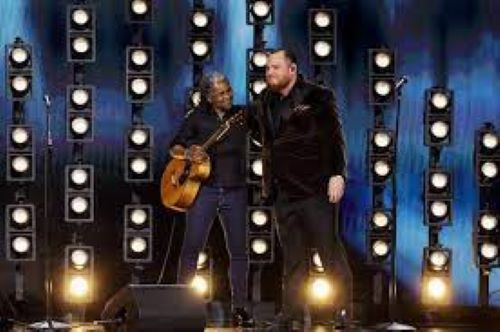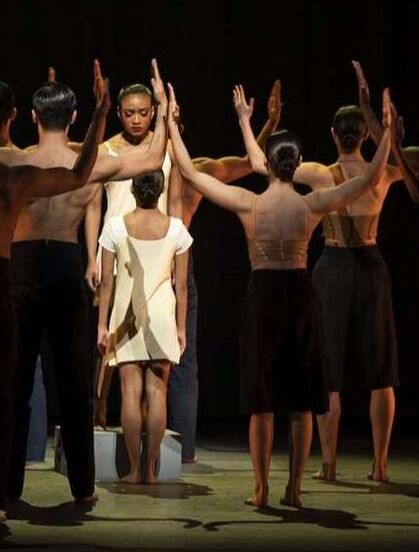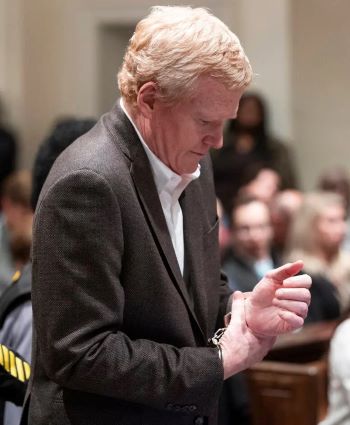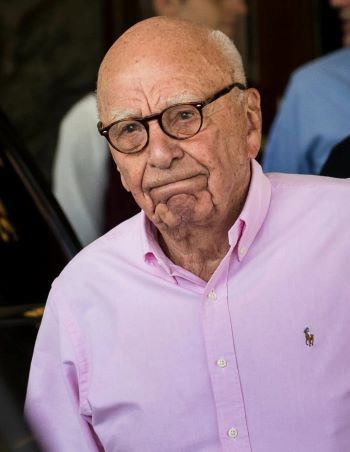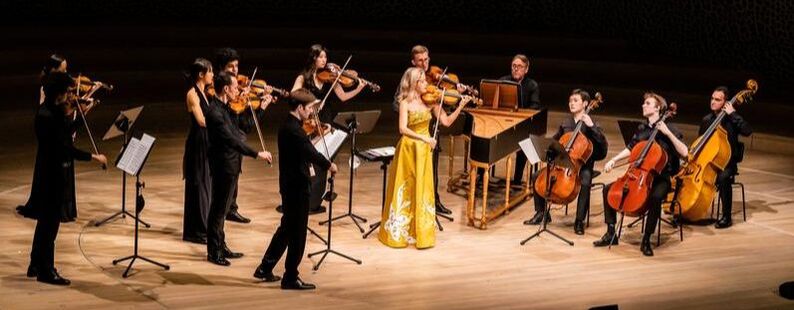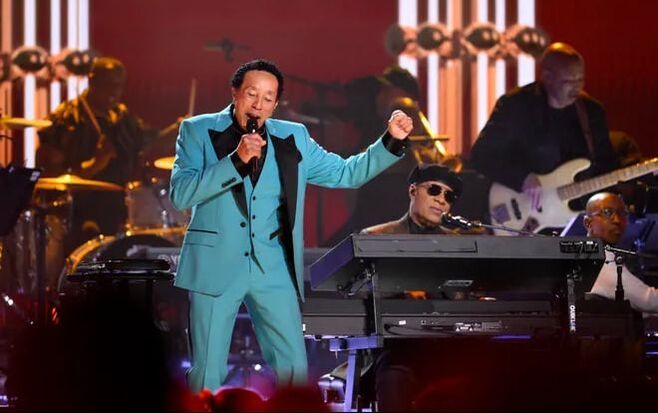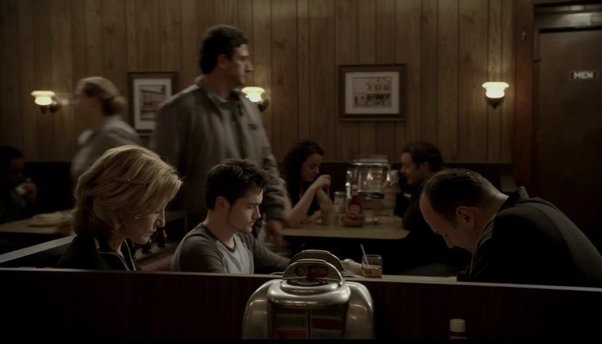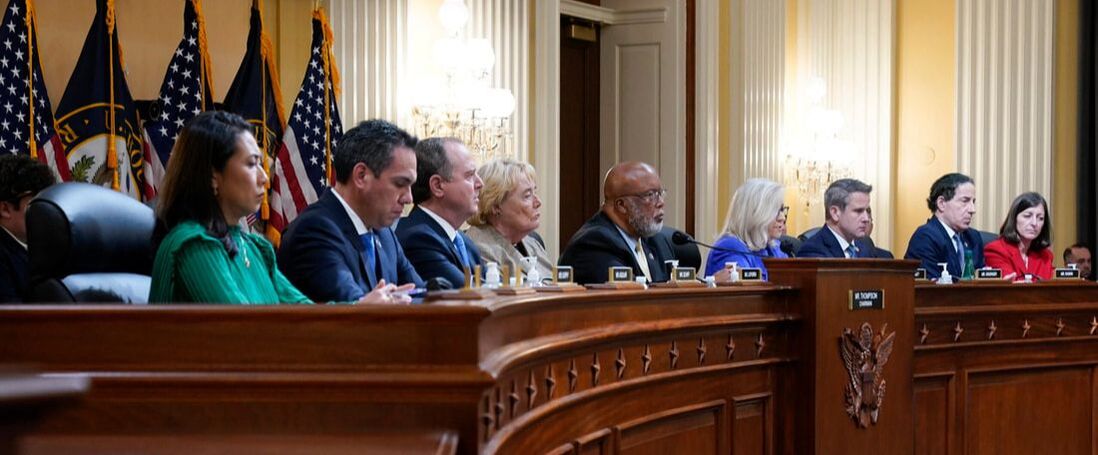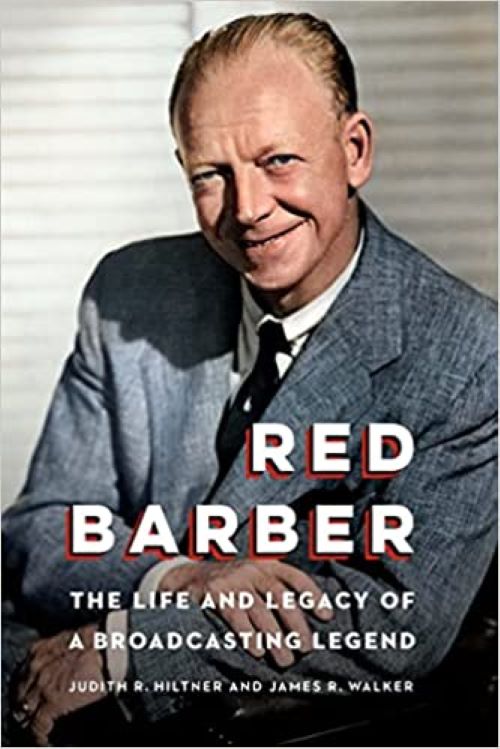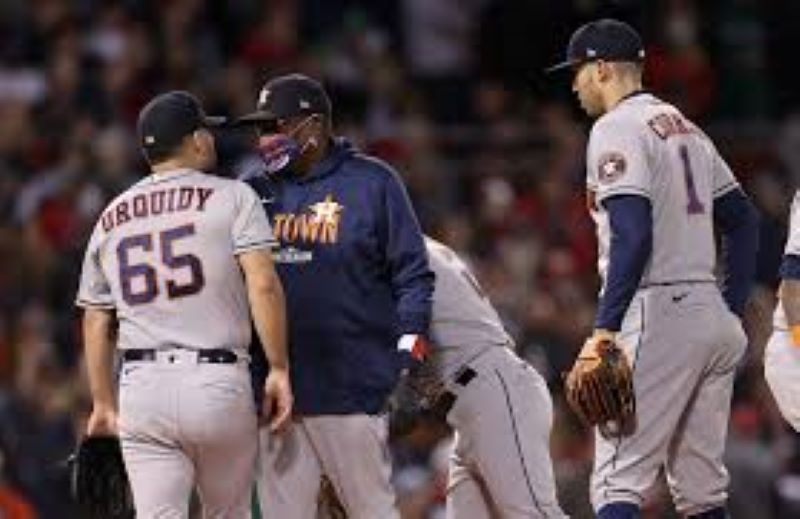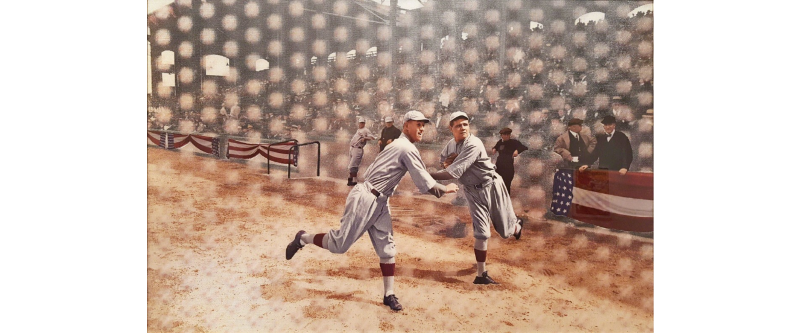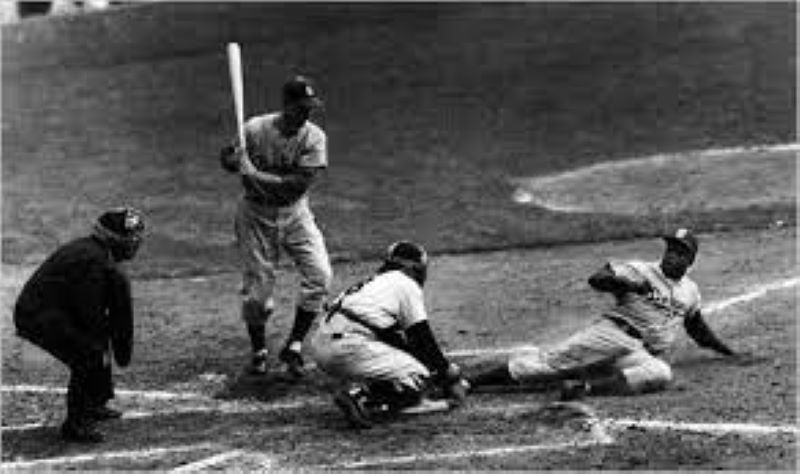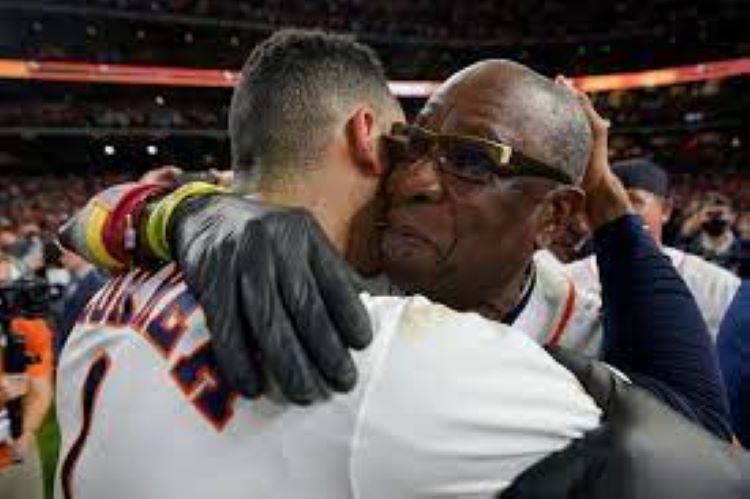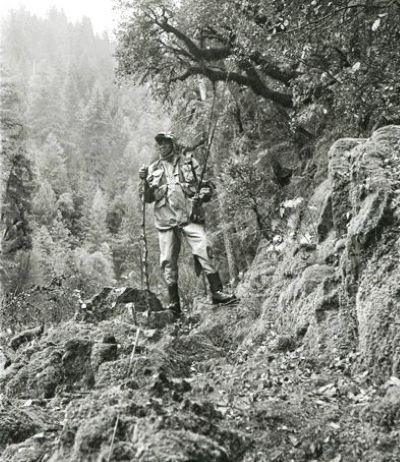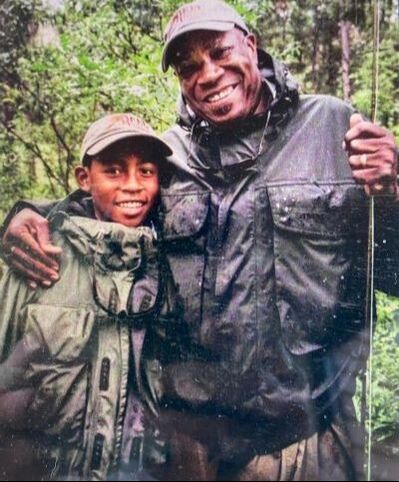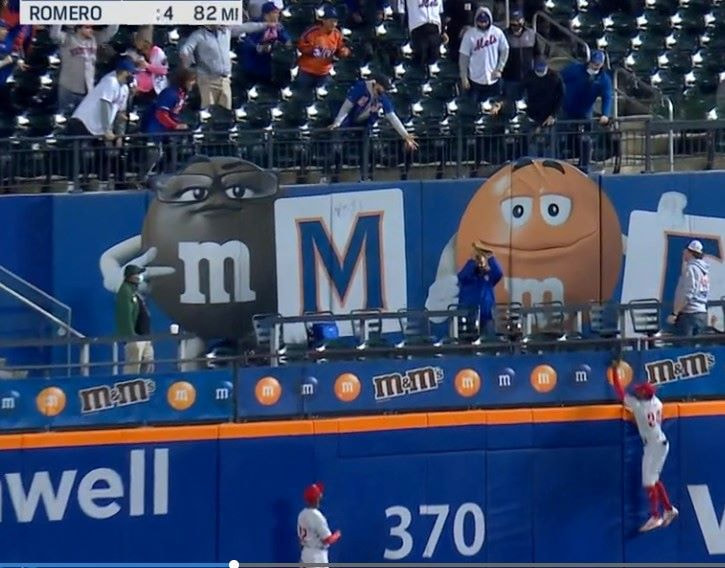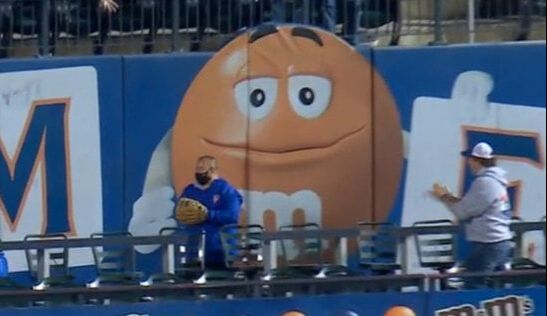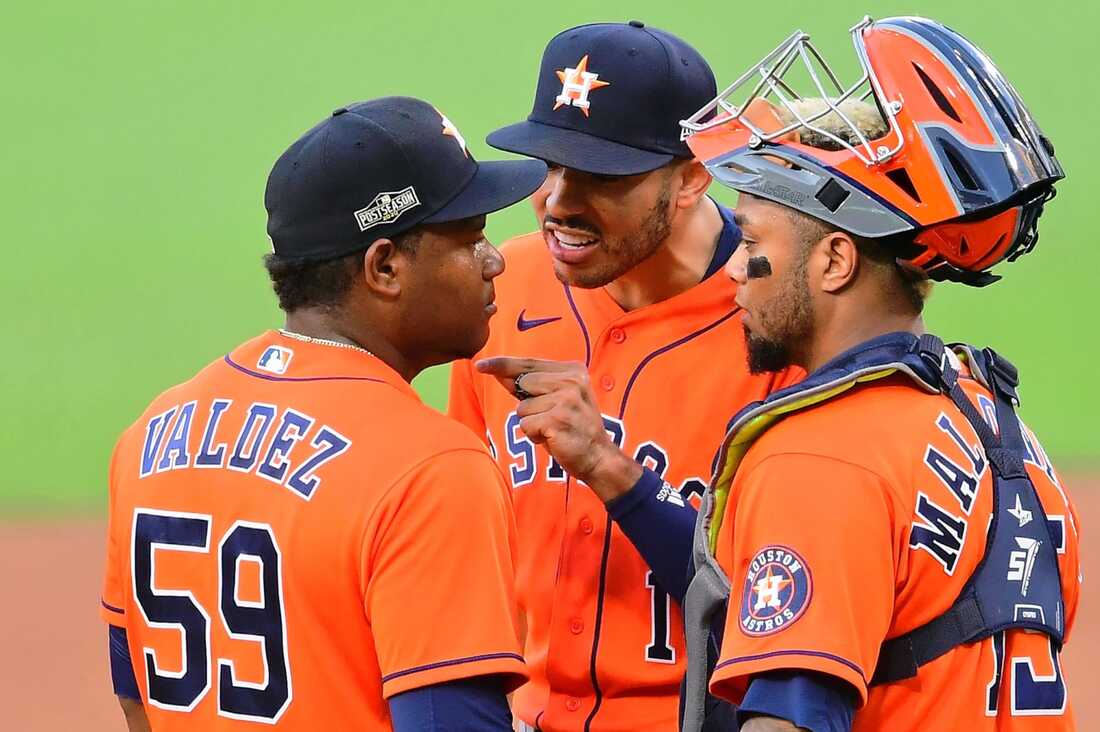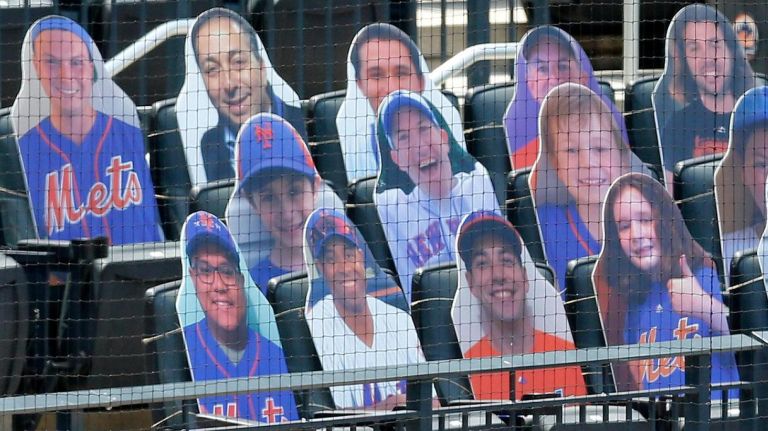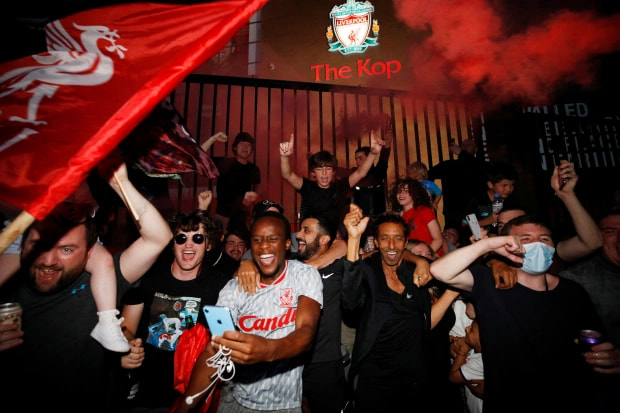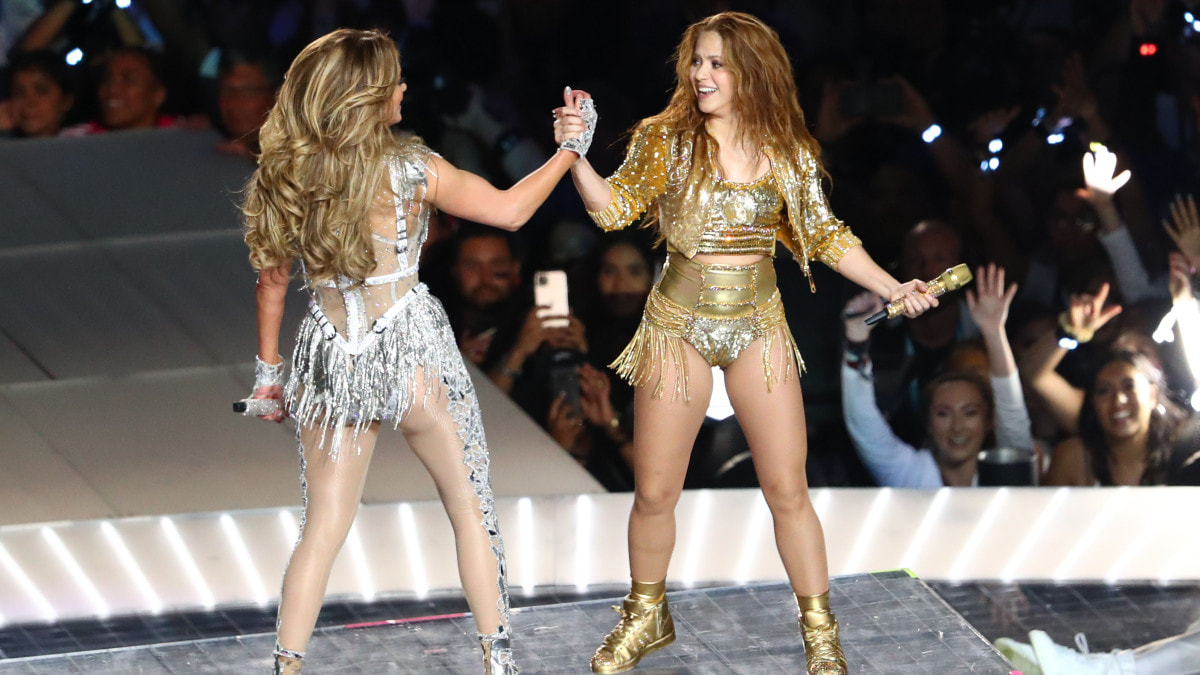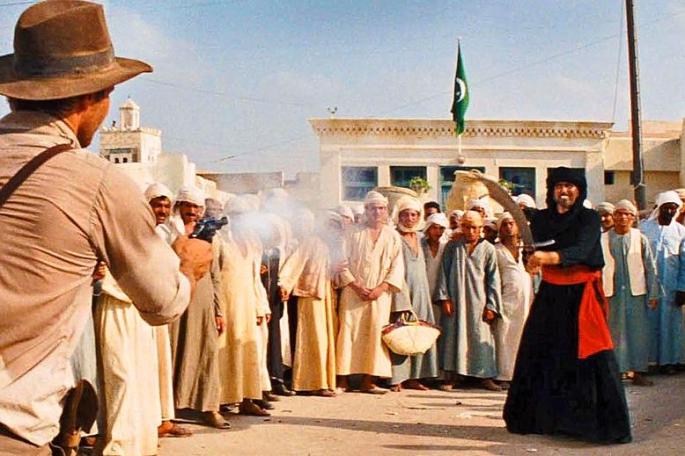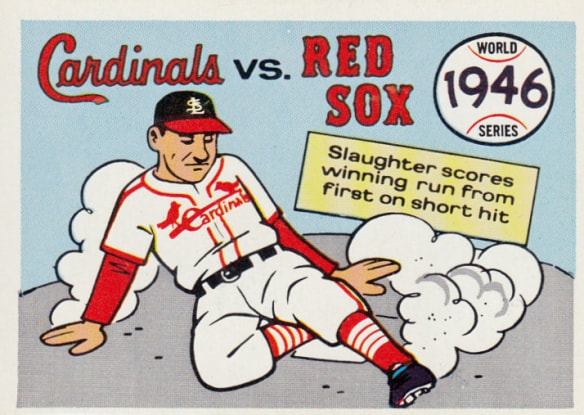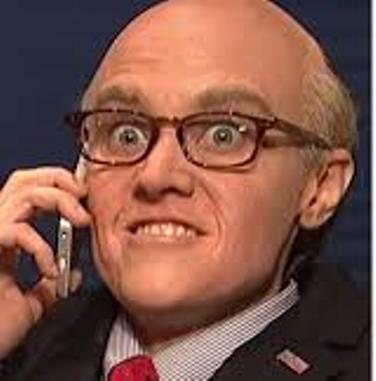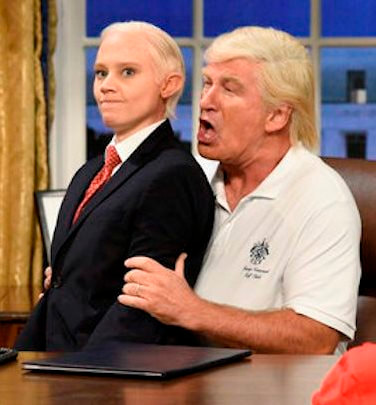|
I’m finishing up a four-day sabbatical from watching baseball – although not necessary from thinking about baseball, talking about baseball, writing about baseball. Fact is, two friends – former ball players, now faithful e-mail correspondents, have added to this missive – and a few family Mets fans pulled me back into the game when I was supposed to be resting my brain. I had made a conscious decision to avoid the All-Star Game on Tuesday, plus that gimmick called the Home Run Derby on Monday. Like many Mets fans, I had my fill of mood swings in the first half of the season – the Mets stunk, too many pitchers I never heard of, too many rumors that Pete Alonso would be scuttled. But then the Mets made a gallant run in the month or so before the All-Star Game, rushing into third place. I watched so much that I could justify ducking the all-star events. Plus, I cannot stand network baseball -- too much witless testosterone from old stars, too much born-yesterday overkill from the network booth. I wanted the terrific Mets commentators – Cohen, Darling, Hernandez, plus Good Old Howie Rose on the radio -- to rest their lungs, their eyes, their wits. And I would do the same. However, on Tuesday evening, I was listening to the dulcet tones and expertise of Terrance McKnight on WQXR-FM, when I heard my cellphone popping. It was a family member griping about the garish uniforms on the all-stars, a comment backed up by two family Mets fans upstate. I flicked on the tv, saw the ridiculous gear --convinced all over again that Commissioner Rob Manfred has no feel for the sport. Bad enough baseball is now in bed with gambling dens. Now it is hustling overkill uniforms. Back to classical music. However, two friends were still buzzing about the all-star uniforms. I heard from Bill Wakefield, who pitched for the Mets in 1964 and has saved up a lifetime of memories. (Pitching to Willie Mays! Running around New York with Hot Rod Kanehl! Studying Casey Stengel up close!) Now a retired businessman in the Bay Area, Wakefield proposed baseball switch to uniforms sported by barnstorming teams with Babe Ruth and Lou Gehrig. Good idea. Wakefield wrote about the first all-star game he remembered from his youth in Kansas City – a rain-shortened game in Philadelphia in 1952, won by diminutive lefty Bobby Shantz. Yes! I also heard it on the radio. Wakefield’s reverie triggered my memory of the first All-Star Game I attended – 1949, my father took me to Ebbets Field, great seats behind home plate. For whatever reason, one of my strongest memories is Andy Pafko of the Chicago Cubs, getting a hit, running the bases in the the Cubs’ traditional home uniform, with red logo. What a concept! I sent my Pafko memories to Wakefield, and also to my friend, Jerry Rosenthal, all-conference shortstop at Hofstra College in 1960, then two years as an infielder in the Milwaukee Braves farm system. Jerry – from Madison High in Brooklyn! – had the immense good fortune to study under farm-system coaches Andy Pafko (who had been traded to Brooklyn in 1951) and Dixie Walker (the Peepul’s Cherce in the mid 1940s.) Jerry, later a schoolteacher in Brooklyn, came through, as I knew he would, with his memories of Pafko and Walker. From Jerry Rosenthal:  I was thrilled by seeing that Andy Pafko baseball card! I will never forget Andy ; one of the finest men I ever met! During the Braves' minor-league spring training camp of 1962, in Waycross, Ga., I got up the courage to asked Andy about "the shot heard round the world"! It was in the "rec" room, after one of our afternoon games. Somehow, I was one of Andy's favorites. That was partly because I was from Brooklyn and we could talk knowledgeably about the old Dodgers and the wonderful Brooklyn culture of the early 1950's! By the way, Dodger fans loved Pafko! Andy told me that he actually cried when when the Dodgers traded him to the Braves! He also said that his time in Brooklyn were his happiest years in baseball!” (Jerry recalled how he asked about Pafko’s moment in 1951, watching Bobby Thomson’s home run sail over his head into the lower deck at the Polo Grounds.)
Jerry wrote: "I finally asked him about Bobby's historic "shot." "I distinctly remember Andy saying: "I played many years with the Cubs, so I knew that that any hard-hit ball in the air that was pulled by a right handed hitter was going out! He added that "he could, at times, tell by "the crack of the bat" when the ball was gone"! He said he “heard it clearly." "Maybe that was because of the sparse crowd at the PG on that momentous day! "That iconic picture of Pafko looking up at the lower- left field deck is branded in the collective memory bank of even the casual baseball fan! "Most fans still think Bobby's homer was hit into the upper deck, maybe that was because it looked like Andy was looking high up! Andy told me that he always got this question: "Did you think you had a chance to catch the ball?" It was impossible to jump anywhere near a wall that was fifteen feet high! "Durocher actually commented on the rarity of homers being hit into the lower left field deck; most homers were hit into the overhang of the upper deck! Bobby hit a sinking line drive off a fastball! it quickly disappeared into the lower deck! "As fate would have it, Bobby Thomson was traded to the Milwaukee Braves and roomed with Pafko for a few years! They became close friends. At first, Bobby wore his number 23, the same number as when he was with the Giants, until he switched to 25 the next year. "I wore that hand-me-down number 25 jersey at Eau Claire. Wish I had that jersey today with "Thomson" embroidered in red thread on the inside. By the way, picture available.) "Here's a fact that most baseball fans never mention: Andy Pafko took over the third base position from Stan Hack in 1945 and played third base in the Cubs - Tigers World Series. "The Associated Press named Pafko to the All Star game as the starting third baseman, even though the game was not played in 45' because of the War. "So Andy was one of the rare major leaguers who made the All Star team playing two positions ( all told- Pafko played in five All Star games - one at third base and four as an outfielder ). "Pafko ended his wonderful ML career by being replaced in right field by Hank Aaron! Not a bad way to go out!" *** (Jerry, who was in several English classes with me at Hofstra, finished with a flourish:) "George, couldn't agree more about those beer-league uniforms worn by All Star players! It irritated me so much I watched part of the Republican Convention! "I took an antacid tablet and went to bed! " *** GV: I have the feeling baseball is going to come in handy in the months to come.
16 Comments
The backdrop looked familiar -- the Jamaica Ave., Elevated train -- The El.
It was the hub when I was a kid. In Sunday's NYT, there is a story about Brandon Blackwell, who broke into the British quiz shows, representing not Oxford, not Cambridge, but London's Imperial College. Great article by David Segal. https://www.nytimes.com/2024/04/07/business/uk-university-challenge-brandon-blackwell.html I hope you can access the article. *** Great stuff in the NYT in recent days. Wesley Morris wrote a literate and knowing article about the last show of "Curb Your Enthusiasm," 12 years of aggression and bruised feelings. I will admit, I never watched the show -- mainly because I had the feeling, "Wait, I know those people." I'm from New York, I know people in LA, I've had dealings with people in movies and journalism and just-plain-life. The only series I watched, obsessively, in the recent third of my life was "The Sopranos." I plotted my whole week around a TV set that carried it -- finding a motel on a reclaimed coal strip mine in Eastern Kentucky. I totally understand "Curb" fanatics. Wesley Morris, one of the best writers at the NYT, explains why Larry David annoyed and entertained people with his intrusive stands with friends and strangers. I hope you can access this masterpiece. https://www.nytimes.com/2024/04/05/magazine/larry-david-curb-your-enthusiasm.html *** Finally, has anybody noticed the reappearances of stars from the NYT sports section before it was disappeared in favor of stuff from a sports website? The stars have found places in the diaspora of former sports bylines, and have been encouraged to write wise and literate articles about sports, the kind readers used to expect: My Queens pal, Andrew Keh, has a piece in Sunday about soccer fans who congregate to a Brooklyn bar whenever their favorite team -- from Denmark -- is playing. https://www.nytimes.com/2024/04/07/nyregion/akademisk-boldklub-new-york-owners.html Billy Witz was assigned to write about the Caitlin Clark phenomenon at Iowa, https://www.nytimes.com/2024/04/02/us/march-madness-women-iowa-lsu.html And Talya Minsberg, a versatile editor and byline in the lamented Sports section, now writes for the Well section -- so naturally she explained the physical and mental training that brought Clark and Iowa to the NCAA finals. https://www.nytimes.com/2024/04/05/well/live/caitlin-clark-iowa-training.html As we used to say when I was a reporter on the National staff half a century ago, I detect a trend. May I quote Bruce Springsteen in his epic "Atlantic City:" Everything dies, baby, that's a fact But maybe everything that dies some day comes back So many bad things going on, sport is the least of it.
But sport teaches you to hope, to endure – an experiment in a test tube. Take Edwin Diaz of the New York Mets. Last March his Puerto Rican national teammates piled on him in a victory scrum in the World Baseball Classic. The weight, the motion, crumpled his right knee. Within minutes, fans and players and doctors alike knew he would not pitch for a long time, or maybe ever. The gloom took over. If you ask me, the loss of Sugar Diaz caused the Mets to go into a shell, made stalwarts like Pete Alonso and Jeff McNeil try to over-hit the ball, put pressure on creaky elder pitchers – effectively ruining an entire season. Mets fans (and Mets writers) tend to think we are experiencing the mood swings of all humanity. We are from New York, representing New York, and we tend to think it is the center of the universe. So the loss of Edwin Diaz and his sizzling sideways slider put the entire planet off kilter (including things that really are important.) The season was empty. Darkness enveloped the land. The world was out of kilter, without the loudspeaker blasting the Edwin Diaz entrance anthem, “Narco,” recorded by an Australian known as Timmy Trumpet. Would we ever hear it again, see it again, cheer it again? Tonight (Monday, March 11, 2024) we heard it again, in an exhibition game in Florida. After a year of rehab and work, Diaz made his return in a spring exhibition game in the Mets’ home ball park in Florida. An electrical failure seemed a bad omen in the first inning, blacking out 10 minutes of tv, but the game returned, and in the fourth inning, the screen showed Diaz slipping into the bullpen, to warm up, as if he had never been away. In the top of the fifth inning, the sound system blasted the music of Timmy Trumpet, the ritual in our souls from the 2022 season. Edwin Diaz jogged to the mound and struck out three straight Miami hitters – all of them major-leaguers, not bushers filling out a road exhibition roster. His slider slashed at an impossible straight line from 90 degrees to 270 degrees, across the plate. Three straight strikeouts. Not even the emotional Mets fans could have hoped for this. Then Diaz skipped off to the home dugout to be embraced by staff and teammates. Back home in Long Island, all the bad stuff in the news – the fighting, the starvation, the threats, the bombast, the stupidity -- was temporarily overshadowed. Between innings, Diaz was interviewed Michelle Margaux, the sideline reporter, and I scribbled down phrases in quite decent English, like, “I feel good…amazing…in front of the crowd…I was making pitches….I want to say thank-you…I spent time with my family, my kids, I had time with my friends, and I was working hard…I missed my teammates…we are a family, really close….” Sugar Diaz said he had missed the trumpet at the ball park – but at home, he added, his two children often played “Narco,” the blare of Timmy Trumpet, which clearly revived the spring in the reconstructed knee of Edwin Diaz. So maybe this is the start of something – light instead of dark, warmth instead of wind, perhaps even, do I dare say it, sanity instead of madness. I am not sure I love the new ownership of the Mets – making Pete Alonso dangle, listening way too much to the analytics dweebs who value lusty longball swings rather than professional hitting strokes. In the Cohen stewardship, I have been brushing up on my Italian, the quote from Dante’s Inferno, that I memorized years ago: “Lasciate ogni speranza, voi ch’entrate.” (Abandon all hope, ye who enter.) In the daily grind of baseball, the buzz lasts only one night. But after watching the sliders of Sugar Diaz, I have hope, and that is something. I wondered what the young people thought of Joni Mitchell, in her survivor’s voice, tapping her survivor’s cane, finding the gravelly notes that worked so well.
Rows and flows of angel hair And ice cream castles in the air And feather canyons everywhere Looked at clouds that way Lyrics. Ideas. Imagination. Joni once wrote a song about a party on a Grecian isle, another song about a roadhouse, dancing with a coyote. She was young, now she is old, having survived an aneurysm, Sunday night presiding on a throne, at the Grammys, accompanied by Brandi Carlisle. Queen Joni. And Stevie Wonder, singing a duet with the late Tony Bennett, who died this year at 96. The music is part of our lives. I remember being 10 or so, hanging out with a couple of Italian cousins in Queens, and an older sister was raving about a concert she had attended, “by that crazy Tony Benedetto from Astoria.” The necrology continued – performers who made us happy, or sad, or thoughtful, sometimes all at once. Gordon Lightfoot, whose “Early Morning Rain” made me homesick for New York while living in other people’s town. Andre Watts, so young, taking over Carnegie Hall on a Sunday afternoon, so long ago. Sinead O'Connor, one more reason to treasure the Irish passports we keep up to date. Harry Belafonte – we saw him once on a hot, still summer night in Forest Hills in the 60s. Astrud Gilberto – we saw her in a club on the East Side of Manhattan. Robbie Robertson – I saw him with The Band, four or five places, and in the classic movie, “The Last Waltz.” A recently svelte Oprah Winfrey orated an elegant tribute to Tina Turner, who died this past year, and Oprah praised her music, yes, and also her courage in getting free, and all that entailed. My pal Vic Ziegel and I saw Tina and Ike Turner in a club, I think on North Beach. She was on her way. This night in LA in 2024 also belonged to the young female stars receiving their awards, wearing bits of costume here and there, as they danced up to the stage. Then there was Taylor Swift, recently seen at a football playoff game, cheering her star boyfriend, throwing sour terror into paranoid MAGA types. She said she was going backstage to be photographed with her newest trophy, for her next album cover. You go girl. An early live highlight was Tracy Chapman and Luke Combs, a generation or more apart, playing off each other on her hit song, “Fast Car.” She was so poised, and smiling, with her gray hair. He was gristly and respectful, injecting enough of his bio – Thomas Wolfe’s hilly North Carolina, Appalachian State University, (where he worked as a bouncer), then migrating, as pickers do, to Nashville. As Combs blended with Chapman, I could hear my friend Loretta Lynn nodding enthusiastically and pronouncing, “Now that’s country.” Her highest compliment. As the evening went on, I felt respect for Trevor Noah for maintaining his poise, his intelligence, his sanity. Imagine this night with a lesser host I willed myself to stay awake until the closing by Billy Joel, looking old, but rocking to his standard, “You May Be Right.” I can remember my brother-in-law telling tales of growing up in the same square mile of Long Island as Billy Joel, and how Brenda and Eddie were real people. As the show ended, I was happy that Joni Mitchell….and Tracy Chapman….and Stevie Wonder….and Billy Joel were still making music. Now it was okay for this old guy to fall asleep. ### (Travis Kelce tosses a Baltimore helmet so Patrick Mahomes can warm up.) *** Let me explain. Under normal circumstances, I do not watch American football because (a) I am retired and don’t have to watch anymore, and (b) there is always something else to do. But Sunday was blighted by meteorological misery – rain and cold and wind – ruling out any outdoor activity. Plus, the European soccer season seems to be in some sleepwalking mode, with minimal glimpses of the storied franchises of the Premiership or Serie A. So what to do on a rainy Sunday? My wife roasted a delicious lunch of organic chicken thighs, and I cleaned up the kitchen, by chance tuning the TV to Lidia Bastianich. I cannot cook, but I love to listen to this wise and eloquent teacher, with her chewy Queens immigrant accent. (I found out recently that Lidia grew up in the same Astoria neighborhood as the Walkens and their bakery. (Christopher Walken, included.) On this rainy Sunday, Lidia was showing single people how to prepare days’ worth of meals. (Like the best teachers, Lidia anticipates questions and confusion: “Put the knife in the center, and it will find its own way.”) She sounded lonely, and ran a few quickie tapes of her late mother. Then, it was nearly 3 PM, so I had to find something to do. My wife was otherwise occupied at home, and our three “kids” were elsewhere. I happen to know that Laura and Diane consider Patrick Mahomes of the Kansas City Chiefs to be a spunky and talented kid-brother type – but they were hours away, watching the conference final, and I opted for television. I’ve been following, at a distance, the romance of Taylor Swift, the entertainer, and Travis Kelce, the tight end of the Chiefs. I don’t believe I could recognize her voice, but I can spot her incandescent smile when she pops up in some secure hospitality box at a Chiefs game. I can also place Kelce’s enlightened-caveman looks. So, a football game. The Baltimore Ravens, with their sturdy and athletic quarterback, Lamar Jackson, tried to claim the home-team advantage but their players seemed a bit chippy and undisciplined. The visitors declined to be intimidated – and Kelce fought for his space, at times landing karate chops on the defenders’ forearms, so he could clamp his paws on the ball. Mahomes scampered here and there, a banty rooster (by comparison), claiming every angle of the barnyard. I forgot to mention that Patrick Mahomes’ his dad, Pat Mahomes, was a pitcher for a decade, helping to upgrade the Mets in 1998-99 – a lifer who could converse with reporters, and set an example for the younger pitchers around him. From a distance, I root for the son and his football team. The CBS crew showed a few seconds’ worth of Taylor Swift, here and there, rooting in a private box, her smile identifying her, and the broadcasters Jim Nantz and Tony Romo went about their business without a word of sideshow. I am normally repelled by the manly-man blathering of football broadcasters, but Nantz and Romo called the plays, with Romo quickly explaining how the burly Chiefs linemen slid across the line, opening holes for the ball carriers, including the aforementioned Patrick Mahomes. The broadcasters did not harp on it, but the camera made it clear that quarterback Jackson was frustrated by the cheap shots and blunders of his teammates. To be truthful, they were out of control, whereas Kansas City was disciplined. Not having seen much football in the past decade, I was impressed by the booming kickoffs, effective punts, acrobatic catches. It’s easy for me to say football games eat up a lot of time – three hours plus! -- with precious little action, but I have to be honest, both sides showed skills and athleticism. The Chiefs won, 17-10, with Kelce making 11 catches for 116 yards and a touchdown, and now the Chiefs will play the San Francisco 49ers in the Super Bowl on Feb. 11, in Las Vegas, the new spiritual home of American sports. (The New York Times – the New York Times – running gambling odds.) I can’t predict whether I will watch the Super Bowl. It really depends on the weather….and the schedule of European soccer that day. A young Black man is shot knocking at the wrong door. A young woman is killed after her car pulls into the wrong driveway. And then there are the police shootings. People are trigger-happy, and I know when it got worse – back in 2016 when a real-estate grifter and reality-show character ran for the presidency. He was sending a message to a huge segment of America that it was time to get tougher. Just look the sneers and cheers behind the bad actor, as he goads them into action. People were getting dumber, by choice, and a swath of the country welcomed his message to gear up. America as a reality show was on my mind as I read an analysis of the late Jerry Springer by Jane Coastan in The New York Times on Saturday. She describes Springer as a kind of Dr. Frankenstein who got caught up in his own monster, but she also suggests that he knew what he was doing, all along. Reality shows pay well. I never watched the grifter’s show (having met him a few times) and I never watched Springer’s show, either but I did pay attention to him because he was another Queens guy (Forest Hills HS) and had gone into politics in Cincinnati when I was living down-river in Louisville. Turns out Springer and the more dangerous reality show buffoon were both descended from Germany – one was a Jewish refugee, born in a makeshift maternity ward in the Underground in wartime London, the other whose father attended Nazi Bund rallies and lived in posh Jamaica Estates, Queens. They both understood their audiences. One went into politics to play to the angry white people in America, the other went into television to play to people who liked life on the violent and kinky side. The young grifter also knew the violent side – somebody who would know has told me about the grifter’s father being bandaged all over, recuperating at home after some kind of organized beating. Lesson learned: Just give some orders and people will go out and break some bones. That’s what he was suggesting at his rally in Las Vegas in February of 2016. His subtle political message: How he would like to punch that heckler. Just let me at him! But America has become too soft to allow that kind of frontier justice. Still, thanks to the gun merchants and the Republican lawmakers and the sour Americans waiting behind their front doors, we have quickie frontier justice – and students being shot up in school, and legislators banning the elected messengers. Plus, Charlottesville. Good and bad on both sides, right? America has always had guns. I moved to cover Appalachia in 1970, and some journalist pals at the Louisville Courier-Journal (now terminally Gannett-ized) told me about the television journalist in 1967 (from dear, sweet Canada!) who ignored the warning not to intrude, and was shot dead. The recluse served a year. Yes, I thought about that every time I needed to knock on a door in some distant holler. But now the violence is spreading. People go to political rallies, packing. The grifter is finally facing legal justice, after a wasted year from the sclerotic Justice Department. And good grief, he's threatening to run again. RIP, Jerry Springer. All he did was give Americans what they liked in bestiality and incest and brawling. Seems so innocent now.
Using tango music and the physical concussion of boots stomping on the floor, the ballet follows the unwanted little girl who grows into a dance-hall performer who captivates Juan Perón. But she is followed by her childhood self, a waif in a plain white gown, who quietly materializes at key moments, to haunt Evita. Perhaps the best part of this ballet, from choreographer Annabelle Lopez Ochoa, is performed by the eyes – with camera closeups revealing the emotions of Evita, (Dandara Veiga), fearing her past will be revealed. My wife and I have decided that this ballet might be the best we have ever seen. *** I have always been something of a snob about TV -- soaps, game shows, series (i was obsessed with "The Sopranos.") However, while staying close to home in recent years, I have opened my mind, at least a bit. Every Saturday and Sunday morning, we seek out the Aerial America series on the Smithsonian channel -- hour-long views of the states. Sometimes we “visit” states we do not know very well – like New Mexico and Arizona. My wife, born in Connecticut, with genes from early settlers of Rhode Island and Massachusetts, loves the aerial views of New England. Today the series returned to Maine, which we discovered in the past decade from visiting her uncle Harold, who lived in Bath, a few yards from the Kennebec River, which he had helped dredge before World War II. Harold is gone now, but the Smithsonian cameras take us to coastal scenes so familiar we could taste the fresh catch at Bet's Fish Fry in Boothbay, A swoop over Brunswick showed the home of author Harriet Beecher Stowe near downtown Brunswick – with an old red-brick mill converted into urban offices and shops – “Look, there’s our Thai restaurant!” If we were a bit younger, if there were no Covid, we’d be visiting more of Maine, and other parts of this blessed continent. In recent months, we have seen documentaries of singers who have been part of our adult lives. Joni Mitchell was honored by the Gershwin award, at the Kennedy Center, beaming in the front row, as people praised her music, her idealistic messages. Joni has been recovering from a stroke, but -- spoiler alert: -- on this recent night, she agreed to go to the microphone and in an older, huskier but still blatantly Joni voice, she totally aced the Gershwin standard, “Summertime.” https://www.google.com/search?q=joni+mitchell+honored+at+kennedy+center&rlz=1C1GCEA_enUS874US874&oq=Joni+Mitchell+honor&aqs=chrome.3.0i512j69i57j0i512l3j0i22i30l4.18076j0j7&sourceid=chrome&ie=UTF-8#fpstate=ive&vld=cid:4cc10676,vid:C815lySYh9w Another documentary showed how Roberta Flack started singing classical music – not an easy path for a young Black woman -- and over the years how she took control of her own career. We try not to miss the series, “Now Hear This,” with American conductor-violinist Scott Yoo traveling all over the world to talk music with classical musicians. In all the fields I have covered, I have loved shop talk – from coal miners, from athletes, from politicians, who know their field and, if encouraged, will divulge tricks of the trade. The other night, Yoo explored how Robert Schuman may have been bipolar, interviewing a doctor/musician who can talk and play Schumann. Finally, CNN has been running a series with the actress, Eva Longoria, exploring the food of Mexico, region by region. Longoria, born in Texas of Mexican ancestry, visits contemporary restaurants in Mexico City and is at her best visiting the countryside, chatting respectfully with the earnest women who farm and cook and also trek into the cities to sell their wares.
Recently, Longoria was in the Yucatan peninsula, not just Merida, but the tidal flats where she learned to sift for salt. She also watched the deliberate process of the regional specialty -- baked pork, cochinita pibil -- in a covered pan, underneath a layer of dirt, overnight, for 8 to 12 hours. https://www.cnn.com/videos/travel/2023/03/06/yucatan-mexico-cochinita-pibil-eva-longoria-origseriesfilms.eva-longoria-searching-for-mexico It’s been two decades since I’ve been to Mexico – a soccer match against the USA. It brought back memories of reading travel adventure books by Richard Halliburton in grade school. (Longoria did not mention the human sacrifices into deep wells that Halliburton explored so many decades ago. ) Longoria’s series makes me want to go back to all the places I've visited -- Puebla, Monterrey, and next time Oaxaca. For the moment, I’m thankful to contemporary television for the documentaries that take us so many places, At the moment, Sunday afternoon, TV will take me to another corner of the world -- Oakland, A's vs. Mets. (15 MARCH 2023. BEWARE THE IDES OF MARCH.)
AS OF WEDNESDAY MORNING, I HAVE RENEWED CONTACT WITH THE WEB COMPANY. I'LL TRY TO ADJUST TO NEW CONDITIONS IN NEXT FEW DAYS. THANKS FOR THE NOTES, YOU HARDY FEW WHO NOTICED I HAD BEEN DISAPPEARED. TO BE CONTINUED. MAYBE. IT IS, AFTER ALL, THE IDES OF MARCH. GV Rupert Murdoch's star agitator, Tucker Carlson, is sharing the secrets of his squirrelly heart, via internal e-mail. He says he hates Donald Trump, as opposed to the slavish adoration he shows on Fox Fables. How to explain this? Your explanation is welcome on Comments. (below) Meanwhile, Alex Murdaugh is locked up, permanently. Rupert Murdoch may be out a billion dollars or more for emitting falsities about the Dominion company and called it "journalism," when he actually admits they are lies. I was wondering about the two blokes with similar names a couple of weeks ago, wondering if they are related, so I looked it up. “Originally, the name was a nickname for a person associated with the sea,” says the website, House of Names. The name Murdoch derives from one of two Gaelic names which have become indistinguishable from each other. The first of these, Muireach, means belonging to the sea or a mariner. The second name is Murchadh, which means “sea warrior.” As for the other man in the news: The name “Murdaugh” is “an altered form of Murdoch,” according to “The Dictionary of American Family Names.” I do not mean to make light of the terrible events in South Carolina that sent Alex Murdaugh, a so-called scion of an old family off to prison in handcuffs, convicted of the murders of his wife and younger son. And there are other deaths in the backdrop, including a Murdaugh family housekeeper who died, perhaps from falling downstairs, or perhaps not. (At the very least, the scion stole her insurance money.) That is a tale of privilege and money and also the contemporary usage of drugs. I wouldn’t have minded seeing an occasional mention of the family that profited from OxyContin (and the doctors and pharmacists and flat-out criminals who doled them out like candy, hooking thousands of poor people as well as a lawyer and “scion” with too many toys in lowland South Carolina.) We are left with the image of a wife apparently on the verge of separation, and one son (“the little detective”) discovering more piles of OxyContin, both murdered, and the older son sitting in court, thinking, what? Also in the news is the similarly-named Murdoch, Rupert, who has been infecting public discourse going back to his origins in Australia. He brought his sniggering style of “journalism” to Great Britain and then to the United States. I still remember when a quirky liberal tabloid, the New York Post, morphed into a Murdoch property in the 1970s. Soon we were treated to the Page Six gossip of a lightweight real-estate poseur who would brag about the women he had slept with, allegedly. For many, that was the first time they ever heard the name “Trump.” So we have Rupert Murdoch to thank for that. Recently, in the manner of ganglords, Rupert Murdoch turned on Donald Trump when he began losing at the polls. A Post headline referred to “Trumpty-Dumpty” after recent congressional elections. However, Fox television continued to make money from blather by its commentators – most scandalously in the wake of Jan. 6, 2021, when Trump’s legion of thugs attacked the Capitol. The most famous names on Fox – I cannot even type their names, and of course I never, ever, watch them – stuck with their on-air position that Jan. 6 was a picnic for gentle tourists. In their spare time, however, these paragons of Fox journalism ridiculed some of the buffoon lawyers supporting Trump, and they acknowledged that Trump did lose the 2020 election. But tell that to their viewers out there? People like Tucker Carlson worried about the company profits. “They endorsed,” Mr. Murdoch said under oath in response to direct questions about the Fox hosts Sean Hannity, Jeanine Pirro, Lou Dobbs and Maria Bartiromo, in a $1.6-billion defamation lawsuit by Dominion Voting Systems, the New York Times reported. “I would have liked us to be stronger in denouncing it in hindsight,” he added, while also disclosing that he was always dubious of Mr. Trump’s claims of widespread voter fraud. Now he tells us. Rupert Murdoch has testified that he knew his stars really did not believe the lies they were spewing on-air. He sounds a bit dazed from recognizing reality. But his words are out there. Rupert Murdoch does not believe what makes him rich. So much for journalism. Alex Murdaugh has been sentenced to two life terms. He’s yesterday’s news, sad and horrible news. Rupert Murdoch created a media empire that disregards truth – a television network that helped send thousands of thugs climbing into the American capitol building. Rupert Murdoch undermined a nation, leading to a Gaetz-Greene-McCarthy infestation in Congress. (Can he be deported?) Now his empire is being sued. Apparently, over half the Fox stock is owned outside the Murdoch dynasty. If Murdoch’s acknowledgements ultimately hurt the product -- bad ratings = defections by sponsors – the Murdoch dynasty could be in trouble. Your comments about the strange psycho-drama with Carlson and Trump, and the bizarre hiccups of reality from Rupert. Under "Comments:" On the same weekend, hiding indoors from the cold, we were fortunate to catch two live shows dedicated to music -- both bristling with talent and energy. The radio show was on Friday, a live performance from Carnegie Hall, featuring Anne-Sophie Mutter and the Mutter Virtuosi, her ensemble of young musicians. The show was broadcast by WQXR-FM, the gem of a classical station which has recently enlarged its program of live performances. Not only that, but the station often assigns two of its assets, Jeff Spurgeon and John Schaefer, to be co-hosts. (Spurgeon is known for his witty three-minute synopses of upcoming operas; Schaefer is known for his esoteric taste in new recordings.) The two were posted in the wings of the historic hall, as the musicians walked toward stage, nervous tension crackling through our Bose FM radio at home. Because the concert was on the radio, we could not see which of her bright gowns Mutter had chosen, to go with her energy (and, dare I say it, her beauty) but the music reminded us why Mutter has been one of the best violinists in the world, for four decades, since her mid-teens. Mutter was the driving force in pieces by Vivaldi, Unsuk Chin, and Saint-Georges, a composer of Senegalese ancestry, who was a few years older than Mozart. The co-hosts told us that Saint-Georges is the subject of a forthcoming movie, “Chevalier,” due to be released in April. After the break, Mutter led the ensemble through a bristling version of Vivaldi’s “Four Seasons,” and then the audience (this was, after all, Carnegie Hall) was treated to three encores. Finally, the musicians filed off the stage, punctuated by shoes scuffling and satisfied fragments of chatter. Schaefer likened himself to a sports broadcaster in a clubhouse, watching and interviewing athletes after a good performance. Mutter herself stopped and gave a proud baseball manager’s critique of her players, generous with her time for Spurgeon and Schaefer. In our living room, my wife and I applauded – for the leader, for the ensemble, and for the two hosts. Bravo, WQXR. Bravo! *** Two evenings later, we found a warm corner in our house to watch the Grammy awards. We are acutely aware of being, how can I say this, out of it. We don’t know the contemporary pop music that our kids and grandkids choose, but my wife has been an early fan of Adele, and I had heard that Stevie Wonder and Smokey Robinson were on the card, and that Bonnie Raitt was up for a few awards. Quite enough. We marveled at the star power of Lizzo and her group -- "Big Grrrls" – and we could detect the intelligent sizzle from Taylor Swift – and I wondered why the dynamic singer from Puerto Rico is named Bad Bunny – and we frankly didn’t think Harry Styles has much of a voice. Or does that matter?
But Stevie Wonder had the same impact that he did 50 years ago when he was “Little Stevie Wonder” – and Smokey Robinson could still rock. When Grammy-winner Kim Petras announced that she was the first trans woman to win an Oscar, I could not help but wonder what Gov. DeSantis of Florida – that scowling, ignoramus latter-day George Wallace wannabe -- was thinking, if he was watching. Will he ban the Grammys next year? Or CBS itself? Then came the spectacle – an anniversary celebration of hip-hop – 50 years? Really? A lot of gents with attitudes and costumes, names and faces I sort of recognized, came bounding onto the stage, chanting things that merited a quick and frequent network finger on the bleep key. Frankly, I was spellbound by the procession. Wish I had somebody to explain who they were and what they stood for. But…but…I liked them. Keep bouncing, guys. Beyoncé arrived late. The word was that she got stuck in LA traffic. I didn’t believe it for a minute. Beyoncé merits a squad-car escort with red-lights flashing. Late is fashionable. Beyoncé is fashionable. She can do better than that excuse. The Grammys honored dozens of music people who passed in the last year, starting with a sweet tribute to Loretta Lynn by Kacey Musgraves, singing her signature, “Coal Miner’s Daughter.” My whole family, watching here and there, pinged its approval and why wouldn’t they? Auntie Loretta invited me to help write her autobiography—and put our three kids through college. Thank you, darlin’. Nearly three hours into it, First Lady Jill Biden came out to present the award for the best song. The announcement seemed to legitimately stun her fellow septuagenarian, Bonnie Raitt, who somehow managed a kind and coherent acceptance speech. I have been a fan of Raitt for decades, particularly for her “Road Tested” double album -- one of the most played albums on my iPod – with heart-touching songs like “Longing in Their Heart” and “I Can’t Make You Love Me” qualifying me as a flat-out Bonnie Raitt groupie. As poleaxed as she seemed, Raitt found the grace to mention John Prine, her friend who died of Covid nearly three years ago, who wrote the song “Angel from Montgomery,” on that same “Road Tested” album. Bonnie Raitt, thanking John Prine. With an hour to go on the Grammys, I clicked off the tube. Quite good enough for me on this long, cold and highly musical weekend. (NB: In the first version of this, I forgot to mention the heroes and victims of Trump's rampage -- the police officers who were left to fight it out, without adequate weapons or backup, by that murderous thug of a President. Some of them were present in the front row, mute and injured witnesses to the massive evidence being presented. There were also two guys who just happened to get caught up in the rampage, now professing sorrow, without a trace of remorse or wisdom. One couldn't even find a jacket and tie to appear before Congress. The other guy tried to apologize to Harry Dunn, the brother who had to swat vermin with his bare hands that day. Dunn is a wonderful person. To his credit, he gave the man a blank stare and let him go his way. The witness still has to answer to his wife, who was present on Tuesday. Good luck with that. My belated thanks to the officers who were set up to fail and be injured, by the President of the United States. GV)
I have become addicted to the Jan. 6 committee hearings – hanging on every response, every nuance, every face in the audience. I have not been this involved in any television spectacle since The Sopranos, all those years ago. In fact, I am deeply afraid this series will end the same way The Sopranos did – by going dark, with no final conclusion for the chief character. Tony Soprano and Donald Trump. Guy from Jersey, guy from Queens. When the Sopranos series ended so abruptly – with Tony, Carmela and A.J. eating onion rings while waiting for Meadow to park the car – I understood what author David Chase had done. He let all of us construct our own ending. Okay. Deep down, it was only a TV series, and in some strange way I saw Tony as a family man (as well as a bully and a murderer and gangster), so I concocted my alternate coda for the family – new identities and fingerprints, a swanky home in Boca Raton, the kids in college. Another chance. I could concoct another persona for Tony but I cannot imagine another life for Trump--or his admirers. As of now, I bet there might even be six or seven middle-of-the-road Republican voters around the country who have bothered to watch or read the hearings and have decided Trump is a vile criminal, after all. I have the terrible feeling that AG Merrick Garland will sleepwalk through the final Biden years, and Trump will talk his way out of everything, the way he did starting near the family bunker in Jamaica Estates. In the meantime, I watch these hearings the way I watched the Sopranos. Don’t call me. Don’t text me. I’m a total Fan Boy for Liz Cheney the way I once was for Edie Falco, and I hang on the patriotic history lessons from Rep. Jamie Raskin the way I did on the scowling gangland sagacity of Steven Van Zandt, Tony’s consigliere. This current series is the best education in civics I have ever seen on TV. Every member of the panel reminds those of us who are listening what democracy means, or should mean. I have tried not to rage at the revelations in each of these made-for-TV “hearings,” keeping my cool as people revealed the ways Trump garroted and knifed and shot democracy. I held back my rage on Tuesday watching a weasel lawyer named Cipollone try to suggest he had undergone a miracle cure – seen the light, praise the Lord – although it was clear the committee’s lawyers had suggested he might want to testify, or else. The weasel was 18 months late. However, there are still surprises, particularly last week from Cassidy Hutchinson, the 26-year-old aide to another weasel, Mark Meadows. (What is it with people like Mark Meadows, Lindsey Graham, Kevin McCarthy and the aforementioned Cipollone – they need a strong Fuhrer type to make them feel whole?) Anyway, Miss Hutchinson was still young enough, had not been around politics long enough to have her heart corrupted, and she had the visceral understanding that bad things were going on down the hallway and she shamed the weasel Meadows into at least acknowledging the dark intentions of Trump. Cassidy Hutchinson has taken on the aura of a latter-day Paul Revere, sloshing through the slimy bogs of Washington, shouting, “The weasels are coming! The weasels are coming!” Someday there may be a Cassidy Hutchinson stamp – put me in for a 100-pack. I did lose it on Tuesday, however. My position watching this horror show has come from the Iris DeMent song – “No Time to Cry.” “Working overtime to make sure that I don’t come unglued.” But then Rep. Stephanie Murphy from Florida, one of the panel members I knew least, gave her short summation of the day. She is, she revealed, from a family that escaped by boat from Vietnam. She praised the United States of America, and she linked the committee’s work with the ideals of truth and democracy….and to my amazement I started to weep, great big salty tears rolling down my face, and I turned to my wife (who does not hold back her rage at these thugs) and I found myself blubbering, “They don’t get any of this, do they?” I was referring to the enablers and hustlers and explainers and deniers and downright racists who supported, and continue to support, Donald J. Trump, who is worse than anybody in “The Sopranos.” The Sopranos merely murdered and stole. These people are worse. Unless the Justice Department steps up, I can foresee another show going dark. I worked myself into a tantrum last Friday when Max Scherzer was making his first start for the Mets. I wanted to see the game, plus hear what the Mets’ knowledgeable TV triumvirate of Cohen-Hernandez-Darling had to say about it. Then I found out that Major League Baseball had farmed out this game to some Apple outlet, with unfamiliar broadcasters. Yes, the very same Rob Manfred operation that now welcomes gambling commercials. (Coming next year: commercial patches on uniforms. Baseball goes Nascar.) I knew enough to instantly switch to Good Old Howie Rose, of course – baseball is a great sport for radio, with lifers like Rose -- but people who could not access WCBS-AM radio (upstate New York, for example) were stuck with the gimmick -- noisy strangers hawking silly “probability” statistics but clueless about the daily workings of the Mets. Baseball clearly has no shame. * * * Totally by coincidence, I have been reading a biography of one of the great baseball broadcasters of all time, Red Barber, who introduced my brain, my heart, my ears, to the Brooklyn Dodgers, starting in 1946. My earliest baseball memories are riding around Queens with my father, with Red Barber on the car radio, and listening to night games in our back yard, via a radio that occasionally emitted shocks from a faulty connection in the garage. Red Barber’s melodic southern accent calling a Jackie Robinson foray on the third-base line, on a warm summer night, outdoors? The best. Later I got to know Red in the Yankee Stadium press room, in the 60’s, after he had switched over to the “big ball park in the Bronx” – his alliteration, not Mel Allen’s. Walter Lanier Barber had respect for the game itself, and for the intelligence of the listener, and for the rules and codes of life. I did not know, back then, that Barber was also a lay preacher, but what I did know was that he stood up for the right thing, by his standards, and he offered a measured response when things did not go the Dodgers’ way. He was not an overt rooter, did not refer to ”we,” did not make excuses for Dodgers. On the final day of the 1950, the Dodgers had Cal Abrams thrown out at home, and then lost the pennant on a home run by Dick Sisler. I can remember listening in my family house, as Barber delivered what I took as a sermon of sorts, that life would go on, there would be another season. It helped me get through another Yankee World Series – a piddling issue, to be sure, but he gave hope; there were more important things in life. Now I know Red Barber better, through a valuable new book, “Red Barber: The Life and Legacy of a Broadcasting Legend,” by Judith R. Hiltner and James R., Walker, published by the University of Nebraska Press, which often issues serious sports biographies and histories. Red Barber deserves this adult biography. The book takes me to Barber’s southern childhood, his hard-working father and idealistic mother, a very segregated world, and even Barber’s youth as an entertainer doing – gasp – minstrel music, mimicking stereotypes of Black music. As the young and very ambitious man, morphed into a broadcaster, he was lucky to be instantly taken with a young nurse named Lylah Scarborough, also very southern, but with a difference: she had played with Black children, and had treated Blacks in her profession. The book shows how Miss Lylah prepared Barber to adjust to the advent of Jackie Robinson in 1947, and also to enjoy the culture of the city. He never denied it: he was a work in progress, with help from his mother and his wife. Barber broadcast many sports, eventually on national networks, but his specialty was baseball, first in Cincinnati, then in Brooklyn. He had a code: he could drop folksy sayings (“rhubarb,” “catbird seat”) in his southern cadence, but he had to remain an adult on and off the air. He took his cue from his father, fighting for better contracts; he also learned from Branch Rickey, the innovative, educated and religious boss of the Dodgers. Barber knew he was speaking to Dodgers’ fans but he did not root – was not a “homer,” in the press-box slight. He also did not go along with certain broadcasting ways: calling the 1947 World Series, he told the national audience that Bill Bevens of the Yankees had not given up a hit with two outs in the ninth. The superstitious blamed Barber after Cookie Lavagetto broke up the no-hitter but Bevens assured Barber, heck, it was Bevens’ own fault for walking so many hitters. When a new owner named Walter O’Malley took over the Dodgers, Barber continued to tell the truth. Once he informed the radio audience that the opposing infield was playing deep for a double play because Carl Furillo, the Dodgers’ stalwart right fielder, was notoriously slow. Any true fan knew that already – the great Dick Young had labelled Furillo “Skoonj,” a slang Italian reference to snail -- but O’Malley dropped a snide remark on Barber the next day. Not long afterward, Barber was calling Yankee games, remaining his own man, once noting the sparse crowd (413 paid) for a late-season Yankee game. More broadly, as the book emphasizes, Barber’s austere presence became out of style. Time to move on. Barber spent his final decades back in Florida, still a national figure, from his Friday morning NPR “Morning Edition” conversations with Bob Edwards, plus writing and speaking and eventually caring for Miss Lylah when she developed Alzheimer’s. He died in 1992 and she in 1997. Sports broadcasting has continued to evolve. I would submit that the booth of Cohen-Hernandez-Darling bristles from the individual gifts of all three, starting with honest calls from Cohen and his enlightened questioning of his booth mates -- former ballplayers, a genre that Barber disdained. Hernandez offers the perspective of a fiery on-field leader and Darling offers the perspective of a Yale star who does his homework. My guess is that Red Barber – who was always looking for another protégé like Vin Scully -- could have worked with all three of them. Baseball fans will enjoy this serious biography of an evolving adult who set a high standard for broadcasters, players and fans. Red Barber could get excited. Here is his classic call of the game-saving catch by Al Gionfriddo in the 1947 World Series -- watch Joe DiMaggio make a rare show of frustration. Barber's exclamation of "oh....doctor!" was not a stock phrase of his. He just blurted it.
You could do worse. Instead of watching buffoons and insurrectionists on the tube, hook into the Web for vintage episodes of “Sesame Street.” We’re in for the long haul, anyway. Get prepared. I was reminded of “Sesame Street” recently when Sen. Ted Cruz, that vicious sack of goo, declared “Sesame Street” a public enemy for talking up vaccinations against Covid. Imagine trying to indoctrinate the kiddies (and their adult caretakers) about needles carrying life-protecting medication. I hadn’t thought of “Sesame Street” in a while, what with our grown grandchildren no longer needing our care. But the Cruz diatribe against Big Bird revived our love of early “Sesame Street,” when our children were young. Classic episodes came flooding back -- as real in my mind as scenes from “M*A*S*H” or “All in the Family” or "The Carol Burnett Show." One daughter – known as “Zingara” (Gypsy) to our Italian-American baby-sitter – would come back from kindergarten at mid-day (my wife was at work, teaching) and I would fix a plate of cheese and salami and we would watch “Sesame Street” together. I will never forget the spoof of a game show, in which floppy-haired host Guy Smiley offered a choice of prizes to the winners, Ralph and Trudy Monster – either a paid trip to Hawaii, with a new house, a new car, and ten thousand dollars in cash, or the second prize, a cookie. That sent Ralph Monster into an early-radio Jack Benny-esque cheapskate holdup dilemma. (“Your money – or your life?” “I’m thinking! I’m thinking!”) In the version I remember, Trudy Monster stood by her man. “I know you like cookies,” she said. What a wife. So he joyfully chose the cookie I will bet that episode was as graphic a view into the capricious heart of humankind as anything from Shakespeare or Toni Morrison. Wasn't that a time: Vintage “Sesame Street,” when Jim Henson and his furry friends were inventing a genre and public television. What riffs. At some point in the early days, there appeared a Rubenesque blonde who appeared to be another jovial member of the gang but in her actions and her statements she soon revealed herself as always, always, out for Number One. Miss Piggy. Another classic I remember involves one member of the cast blowing into a banana and producing a jazz trumpet sound. At that point, Gordon, the Black male presence on those early shows, turned toward the camera and, sotto voce, proclaimed, “a regular Miles Davis.” Something for the older folks. As the decades went by, “Sesame Street” produced an electronic trove of masterpieces, many of them on Youtube. Look at the one I found, with young Wynton Marsalis having a trumpet duel with a pure-soul feathery artist named Hoots the Owl. Playing for an audience of adorable kiddies, Marsalis is having a great time emitting his versatility. However, Hoots the Owl has one trick that even Wynton Marsalis cannot emulate. Dude can fly. Classic public television. I’m sure Ted Cruz, dead-soul schlub, hates it. He did the crime and now he has done the time. The crime was exaggerating – embellishing – even inventing – a few moments in an otherwise admirable career. In telling and re-telling, he put himself in more dangerous positions covering war than he had actually been – not a good thing for an anchor, a correspondent, a star.
Brian Williams’ punishment was a work-release program. Instead of appearing on the main network of NBC, for the past five years he toiled at 11 PM on MSNBC, the cable version of the network, where he provided gravitas, experience, even grace. Now Williams has announced he is leaving the network,. He has been a pro, listening to his guests, reacting to what they were saying, or what they were not saying. He presided over a recap of the day’s news and also the latest “breaking news” that never seems to stop. And when their segment was over, he thanked his guests, often with a turn of a phrase. (Wish I could come up with a few right now, but they were unfailingly witty and gracious.) Some Friday nights, Williams’ handsome face has seemed drawn, his hair more gray, at 61, from dog years on the air. I feel the same way from watching MSNBC -- the same commercials for old-people ailments, plus a parade of hosts, some of whom have lost their charm, who natter on, before finally prodding the guests, who can’t always deduce the question, much less the answer. And for four years, the whole process was polluted by a president who did not know truth or reality, only what he could stuff in his gunnysack. It’s not all bad, of course. Andrea Mitchell, the noon anchor, has been there, done that, for decades. Nicolle Wallace and Lawrence O’Donnell have worked inside government; Steve Kornacki can name every county seat in this huge county. Chris Hayes is best in front of an audience. And the younger correspondents out in the field – too many of them to list -- are darn good reporters, I remember when Rachel Maddow would go out in the field to report and editorialize about states polluting their own rivers, states doing their darndest to make Black college students dare to vote in some obscure outback. She was wonderful, and urgent. Now she talks. A lot. Brian Williams, doing his time, pulled the whole day together in the final 60 minutes. I don’t know whether Williams is looking to rest and spend time with his family (the standard departure goal for politicians, or come up with a fresh gig in a better time in front of much larger network audiences. That’s up to him. I only know that Brian Williams has been a ray of experience and poise. Thanks, man. Is this the World Series that is going to take baseball down?
I ask this as a certified Old Guy who has been following the World Series since 1946 (I was quite young) when Harry (The Cat) Brecheen, a wiry lefty, pitched 20 innings and won three games for the Cardinals. Pitchers were epic back then and remained so until the past decade when almost all of them became spear carriers in an opera that drones on, too long, every night. (And it’s not totally the fault of Joe Buck and Fox, either.) In the formerly showcase season-ending event that once saw Deacon Phillippe of Pittsburgh pitch 44 innings and win three games in 1903….and Bob Gibson of St. Louis pitch 27 innings and win three games in 1967 ….and, as recently as 2014, Madison Bumgarner of San Francisco pitched 21 innings and won two games. Seven years later, pitchers are interchangeable, and mostly forgettable, used by managers and coaches who burn to win, and know their game and their players, but are under the un-calloused thumb of mysterious analytics wizards, chained in the laboratory, coming up with numbers that general managers (and club owners) pay for and force upon their managers. The result is two pitching staffs of spare parts, not a commanding figure among them. To be fair, I love some players on both teams -- the miniature second basemen, Altuve and Albies, the Old Reliables, Brantley and Freeman. As good as it gets. But gone is the epic figure on the mound , the center of the action. After five games – the shuttle resumes Tuesday night in Houston, with the Braves up, three games to two – the pitching staffs are mutually anonymous. The most innings by a Braves pitcher is 5.1 by Kyle Wright who pitched most of the season for the Gwinnett farm team in the Atlanta region. The most innings by an Astros pitcher has been tossed by Jose (Hombre de Acero) Urquidy – a massive total of 6. Urquidy also has 2 victories – but may not be remembered along with Bob Gibson, who on the final weekend of the 1964 season pitched eight innings (and lost to the Mets) and then gutted his way through 4 innings on Sunday to help the Cardinals nail down their first pennant since 1946. I remember. I was there. I can still see Gibson on the stairs to the players-only loft. “Hoot, how’s your arm?” a reporter asked. “Horseshit!” Gibson bellowed. After that game, kindly Manager Keane was asked why he went so often with a fatigued pitcher. “I had a commitment to his heart,” Keane said softly – one of the most touching answers I have heard in decades of sports interviews. Gibson then started the second game of the Series and pitched 8 innings and lost, and won the fifth game in 10 innings) and then won the seventh game in 9 innings to ice the World Series. He had pitched 56 innings in 22 days Is this sort of super-human out of stock these days? Have the hitters become so bulked-up, so fearsome, that statisticians dictate pitching changes, while a rank smell of fear permeates the ball parks? Is this the reason baseball has the feel of an ancient ritual, that appeals mostly to geezers with memories, like me? Part of the problem is the glut of commercials and other baseball promos between every inning. And the television production is numbing, with statistics for “post-season” accomplishments being flung at the viewers with no context and no compelling narrative. Joe Buck is plastic and John Smoltz, while he surely knows the game, is humorless. I’m an early person anyway, and I dozed here and there, but for the fifth game I switched to radio,with the TV on blessed mute. The ESPN crew of Dan Shulman, Jessica Mendoza and Eduardo Pérez was vastly better – more interplay and humor and even disagreement, plus expertise (Mendoza was an Olympic softball star, Pérez played over a decade in the majors. Vastly better. ESPN is 98.7 on the FM radio in the New York area. Nevertheless, the World Series lacks star pitchers who command attention. No Christy Mathewson, no Smoky Joe Wood, no Mickey Lolich, no Randy Johnson. You want a plot? You want drama? Go watch baseball, in the international spotlight, throttle itself. Let’s get this straight. Think of the Houston-Atlanta matchup as the World Series – an event unto itself -- not the end of a long and grueling tournament. Think of the World Series when it stood alone as a treat, a dessert right after the regular season, in sunshine – bright or hazy – rather than a late-night marathon with people on the East Coast dozing off. (Me! It’s all about me!) The recent games, as good as some of them were, have been bloated with post-season statistics, most of them irrelevant. For the next four to seven games, everything that happens should be compared to derring-do performed by players like Babe Ruth, Tris Speaker, Frankie Frisch, Whitey Ford, Yogi Berra, Duke Snider and Mickey Mantle. While we’re talking about wretched trends, have you noticed the commercials for gambling dens, gambling sites? I mean, how could you not? At least, the commercials for Caesars gambling world are interesting, with a cool latter-day Caesar giving the people a spectacle. The gambling commercials play into the weaknesses of thousands, millions, of people who come to life only when their money, their lives, are tied into the action – pitch by pitch, by dancing roulette balls or actual pitches thrown by Major League Baseball. The commercials do not show the after-effects of people betting the rent money, the food money, school tuition money, and skulking around, unable to admit they have a gambling jones. The last time I looked, Pete Rose is still banned from baseball for gambling on games (including ones in which he may have managed or played.) Rose, the dope, also stonewalled Commissioner Bart Giamatti, who seethed with anger and died of a heart attack a few days later. Under Rob Manfred’s “leadership,” baseball is sanctimonious about gambling because it needs the TV commercial money because baseball is falling behind other sports. (When I am watching Liverpool-Man City on the tube, I can tell my wife it will be over in two hours.) Baseball is also falling behind other sports because it has become bloated with pitching changes and rituals like adjusting wristbands (and private parts), plus the ball is in play less and less. The new analytics dictate “strategy” involving shuttling pitchers in and out of games, batters swinging for “exit velocity.” However, a good sign is that the better teams – the ones we are seeing in October – seem to remember old-timey tactics –the occasional hit-and-run, the professional sacrifice fly, the stolen base. My friend Jerry Rosenthal is enamored with the Atlanta Braves, for good reason. Jerry played two years in the old Milwaukee Braves farm system, with mentors like Dixie Walker, Andy Pafko and Jim Fanning, and he played against Bobby Cox in the minors, and decades later he chatted with Cox at the Mets’ ballpark. He says the Braves and Manager Brian Snitker have never stopped inculcating players with traditional skills and tactics. “Snitker is a clone of Bobby!” Jerry wrote in an email. “He has the fine human qualities that a great manager must have! I think the whole process comes naturally to this ‘old salt’ who learned his trade by managing in the minor leagues for many years, just the way it was when I played!” Jerry added: “If this series with the Dodgers doesn’t teach these new-age numbers savants that the game is played on the field, nothing will! The consistency of the Braves defense is remarkable! Everyone does their jobs in a workman-like fashion. No outsized egos in sight! “The concept of ‘picking-up’ the guy who didn’t get it done is evident in the Braves’ approach! Put the ball in play, move that runner to third base, steal a base, etc.! I love it!” The Astros have stayed mostly intact as fans haunted them with reminders of the sign-stealing scandal four years ago. I can’t help enjoying that team that was so much fun a few years ago, although I miss George Springer. To get to the point, how does a neutral fan, like me, choose between the Braves or the Astros? When I was working, I rooted for the cities of San Francisco and Oakland mainly for the ambience of the Bay Area, or Boston, for the October walks. But now, my standards are different. The Dodgers have been gone from Brooklyn since after the 1957 season so during this year’s wild-card playoff I immediately rooted for the Giants because of one player, Wilmer Flores, known affectionately as Weeping Wilmer for the way his emotions flowed the night he heard rumors the Mets had traded him. (It was subsequently called off.) This year, Wilmer was at the plate with two outs in the ninth, and Ron Darling (who made the TBS broadcasts so good) told the audience that Wilmer was a clutch hitter with the Mets. Just then, Wilmer was called out on strikes while trying to check his swing. After seeing the replays, I think Wilmer and the Giants were screwed, but we have moved on, haven't we. I had no problem with Mookie Betts and the Dodgers, or the team representing the great city of Boston, and as a Mets fan I liked the Braves of Chipper Jones and Bobby Cox, and I like this team, with Freddie Freeman schmoozing with everybody who reaches first base, plus unglamorous old school manager Snitker. But now we’re in the World Series; remember, it’s a separate entity, no matter how many "post-season" stats Fox shovels at us. I find myself gravitating to Houston – that very contemporary American multi-cultural city -- because of the manager, Johnnie B. Baker, Jr. Dusty was mentored by Henry Aaron and later was like a big brother to my late friend Bob Welch, a star pitcher with the Dodgers in the early 80s. Now he has been a good manager with five different clubs. Baker was profiled by Tyler Kepner, the Mister October baseball columnist of the NYT, who pointed out that Baker now holds the record for most games (1987) won by a manager without winning a World Series. Baker, true to himself, acknowledges that he was aware of that “distinction” during the league series, and he will surely be asked about it during the World Series. He can handle it. I’ve been around Dusty during part of his managing odyssey with the Giants, Cubs, Reds, Nationals and the Astros, and I also heard about him through my pal John McDermott, master photographer, now living in Italy, who knew him in the Bay Area. “Dusty has a great family,” McDermott reports. “His son Darren plays on the baseball team at UC Berkeley” – a reference to the son-of-manager junior batboy who wandered too close to home plate during the 2002 World Series. “He has a wine company, Baker Family Wines: and an energy company, and is good company.” John knows Dusty via a fellow Bay Area photographer, Terry Heffernan, a fishing buddy of the manager. "Dusty is many things: smart, wise, emphatic, loyal, fierce, a giver, consistent, quick to smile, a lover of life… a true friend, the real deal!" Terry emailed me. He added: "Its easy to talk about Johnnie B Baker Jr. If we all rolled like he does, our world would look very different! "GO ASTROS… and hopefully Mr Baker will break the managerial Hall of Fame color barrier!" I’m retired. I don’t have to profess neutrality. All due respect to Atlanta, I’m rooting for Houston, mainly because of Johnnie B. Baker, Jr. Chinese faces and Southern accents. Jewish women with Southern accents. Black chefs talking about their specialties. These are some of the highlights of a great new PBS series, “Somewhere South,” starring Vivian Howard, a chef now starring in a role she was born to play – a wandering correspondent with curiosity, exploring the food and histories of the diverse peoples of the Southland, Howard is one of the great teachers who have enriched our lives in the past year, along with Lidia Bastianich, la maestra della cucina, and Margaret Renkl, one of the best reads in the NYT, explaining nature, literature and her native South. Howard has been on TV for a while, on reality television, as she and her chef-husband, Ben Knight, established contemporary restaurants in her native coastal North Carolina. From their adventures and misadventures, Howard branched out a season ago, getting southerners to talk about their lives and their food. I cannot cook at all – not a thing -- but I live well because of my wife’s eclectic and delicious cooking. As a journalist, I have also enjoyed my wandering around the South – some politics, some hard news, and a lot of time feeling the complexities. Now I enjoy watching Vivian Howard, a daughter of the South with a charming accent and a lively curiosity, as she gets Southerners to open up about their food and their lives, (One favorite moment was when a Korean-American chef sniffed at southern dumplings as essentially just doughballs.) Howard finds the way ethnic specialties survive: one show features Jewish women’s way of making matzoh ball soup, followed by Chinese chefs showing Howard to crimp the dough just right. Howard, it turns out, is a born journalist, not afraid to ask questions, eliciting the histories of her subjects. Chinese elders discussed how the older generation made money running restaurants and delicatessens, so their children could get educated and go into professions. In one thoughtful segment, Howard talked with modern Black chefs, some of whom seemed to test her for any signs of patronization….and then they all relaxed and had a good talk and a few laughs. Howard loves the South, much in the tradition of fellow North Carolinians -- Gene Roberts, the great NYT national editor who let me loose in Appalachia, and Charles Kuralt, the CBS host who roamed the country with a camera and his curiosity. At times I find myself thinking of poor Anthony Bourdain, visiting places like Bahia, Brazil, bringing his lusty appetite for unique places, food, drink, music and people. Two other great voices enriching the air waves belong to Lidia Bastianich and Margaret Renkl. Bastianich survived the upheavals in northeast Italy in World War Two and is now entrenched in northeast Queens, a staple on TV. My wife understands the fine points; I love the way Lidia tosses off vital tips about how to simmer, how to sprinkle, how to chop. She is never patronizing, always generously maternal, sharing her tricks.
As a wannabe Italian, I love her zest for Italian culture and history – and always look forward to the end of her session -- tossing off her trademark “Tutti a tavola a mangiare.” – Everybody to the table to eat! Lidia’s shows usually incorporated her beautiful mother, Erminia Motika, who passed peacefully at 100, this past Feb. 14. Our condolences a la famiglia. Finally, I want to praise the NYT editors for installing Margaret Renkl as a highly literate voice on the NYT website and in print. Renkl is at her best explaining the nature around her home in Nashville (one of my favorite American cities), as well as the ways of her native Alabama and the Deep South. I loved her recent poetic appreciation of the 17-year cicadas, and why they are good for the ecology. Who knew? https://www.nytimes.com/2021/05/10/opinion/cicadas-brood-x-2021.html My thanks to Vivian Howard, Lidia Bastianich and Margaret Renkl. Mille grazie, you-all. ### (This just in: fan makes cheesy catch of home run ball.) * * * Clearly, baseball missed its fans as much as the fans missed baseball. Now we fully understand the pandemic pall of the truncated 2020 season -- no fanatics, no diehards, no leather-lungs, no lunatics, adding color and noise to the play on the field. Never again underestimate fans. Even with the modest percentile of fans allowed in ball parks in states where governments respect the murderous potential of the virus, baseball feels more like baseball this year. Fans with distended facial features and thrashing arms try to summon a rally. Fans stand and applaud a gallant catch, a timely hit, a strikeout pitch by the home side. Even back in our solitary dens, staying safe, we enjoy the game more this time around because some of our fellow fans are out there, doing what we do not yet dare to do – cheering, booing, beseeching, heckling, though their masks. Those fans are there for us. This was apparent Wednesday night as the Mets won their third straight game on a manic homestand. Some fans even displayed mid-season form in the skills of the game. James McCann, the experienced catcher who has already picked a runner off second base – first time in eight years for the Mets! – slugged a long fly ball to left field. Two Phillies made frantic runs to the wall, one digging his spikes into the padding, but the ball was over the railing – and into the glove of a fan in his socially-distanced position. The fan looked like a latter-day Mickey or Willie or The Duke as he softly squeezed the ball. Heroes all around us. Seconds later, a fellow fan applauded the catch, and the TV announcers duly noted the brilliant positioning and soft hands of the civilian. Better yet, somehow the Mets’ TV crew located his wife, Jessica, and their twin sons, celebrating McCann's first home run with the Mets. Last year that family moment could not have happened. Baseball has life again -- despite the mad-professor innovations in majors and minors: the goofus runner on second base in extra innings, the threatened extra foot from the mound to home plate, other silly little gimmicks in the fevered minds of Major League Baseball executives who apparently hate the game for which they are allegedly stewards.
But at least there are fans again – cheering, heckling, groaning, applauding. Some fans can even catch a major-league fly ball. Play ball! Sunday 6 PM: Since this post began as a praise to baseball for keeping me sane, let's stick with this post through the end of the Series....even with peregrinations to college rivalries (?) and uniform numbers and love of La Belle Province. My dirty new little secret: I couldn't watch Games 3 and 4 because I cannot stand the two Fox guys. They display no wit, no change of pace. In the day hours, my baseball lunch companions have been conducting a web seminar in scoring, fielding, analytics pro and con. Anyway, I am on for Game 5 Sunday evening -- and any ramblings that may ensue. GV  Freddie Freeman chatted up everybody, particularly Cody Bellinger Freddie Freeman chatted up everybody, particularly Cody Bellinger While waiting to see if the United States can save itself on Election Day, I needed something to fill my socially-distanced time.
Once again, baseball has come through – with a 60-game mini-season that allowed me to have a familiar sense of angst and rage about the Mets. Now there is about to be a World Series – with any luck, as taut as the two league series, seven games preferable to four – something to occupy house-bound fans like me. My first hope is that the network types will stop bombarding us with “post-season” statistics. First of all, give the computer a rest. Enough with the arcane stats. Second, we are about to enter what used to be called the World Series but now seems to be morphing into “the finals,” like the other endless post-season “playoffs.” True, the title “World Series” is a bit pretentious, even now with Latino and Asian players everywhere, but the title is baseball’s throwback to the days of two separate leagues that produced one champion each, to meet in early October. The leagues were different. Starting in 1947, the National League got a head start with the majority of Black superstars, and the American League had the Yankees stomping on their supine league rivals. Then, more likely than not, the Yankees won the World Series. Now baseball has blurred the rivalry between two leagues, but the separate identity of the World Series needs to be protected – including separate World Series statistics and achievements as homage to history, going back to 1903. So much else has changed in baseball. The recent series confirmed that the age of great starting pitchers has been terminated. Pitchers are interchangeable parts, no longer expected to go long. As Tyler Kepner pointed out, a pitcher can have a 3-0 lead in only 66 pitches and still be replaced by the parade of relievers, as Tampa Bay’s Charlie Morton was Saturday evening. That’s the way the Rays roll – right into the World Series. Most managers seem wired into the dictates of the analytics hordes in some bat cave under the ballpark. Hitters are encouraged to swing for a launch arc, not putting the ball in play in some open sector of the field. Something’s been lost. But I watched. And watched. As an alternative to endless sightings of a dangerous fool on the loose. And when the league finals came around, I found things to like about all four teams. I fell in love with Houston a few years ago, because of their charismatic players, before we knew the organization was systematically stealing signals. Now the Astros have become the team people love to hate. Did you see James Wagner’s great piece about the fan who hectors the Astros at high decibels? I get it -- the antipathy toward the Astros -- but Dusty Baker, age 71, a good human being who surpreisingly got to manage the Astros after the housecleaning, and I want him to win a World Series one of these years. Plus, I loved how Carlos Correa made clutch hits and showed leadership by lecturing his pitcher who was about to blow his top. I could not hate the Astros. However, the Tampa Bay Rays played the Mets late in the regular season and I acquainted myself with a willful group of mostly interchangeable parts, managed by Kevin Cash. Some of them could even steal bases and hit for contact, not distance – a throwback to real baseball. FAVORITE MOMENT AS SOME FANS WERE ALLOWED IN THE JUST-CONCLUDED SERIES: Justin Turner of the Dodgers picked up a foul ball -- and lobbed it to a fan in a distant seat. A sweet little custom, now revived I couldn’t choose between the Dodgers or the Braves, either. The Dodgers are the team of my youth, in Brooklyn. I love the uniforms and colors, although I have trouble seeing newcomers in blue Dodger trim. (Wait, why is Kiki Hernandez wearing Gil Hodges' No. 14?) The Braves are the retooled power in the same division as my second-tier sad-sack Mets, and I am jealous about their talent and leadership. The Dodgers had Mookie Betts making plays in the outfield. The Braves had Freddie Freeman, surviving an ominous case of Covid-19 and earning MVP honors – and chatting up any “opponent” who stopped at first base, including Cody Bellinger, the Dodgers’ star who would win the pennant with a home run late Sunday evening. (And dislocated his shoulder giving high-fives in the tumult.) Now the two survivors are going to meet in what sportswriters used to call “the old autumnal classic.” (And I just did it again.) Somebody, please tell the network yakkers: it’s the World Series.  Never heard of David Peterson or Andres Gimenez until they enlivened this "season" Never heard of David Peterson or Andres Gimenez until they enlivened this "season" With absolutely no regrets, I faced the end of the “regular” baseball season, not that anything has been regular about it. The Mets lost Saturday afternoon, and were eliminated, but I have no complaints. . Baseball has done well enough by me this summer. In a terrible time, baseball kept me reasonably sane, in a baseball-fan kind of way – that is, stomping upstairs at 10 PM, gritting the words, “It’s over. They stink.” The “season” came at just the right time – when I figured out we weren’t going to take a drive or visit our grown children or hug our grandkids or go out for dinner or return to the city, my home town, until this poor bungled country figured it out. For entertainment, for escapism, I would watch nearly 60 games’ worth of overmatched pitchers, erratic hitters, outfielders turning the wrong way on fly balls, base runners stumbling into outs, a catcher who couldn’t catch -- and that was only the Mets, the only team I follow. I don’t watch the Yankees (nothing personal, I’ve gotten over my tormented youth, plus Aaron Judge is one of my favorite players), and I cannot stand network baseball, with its overload of gimmicks and just-learned drivel and bland “experts.” I watch only the Mets, or listen to them, and it got me through two months. Besides, what were the alternatives? --Following the smokescreens of a crooked and deranged President? --Obsessing over a pandemic that remains unchecked in an inept "administration?" --Keeping up with merciless hurricanes and fires? I kept to the high road the first few months of the pandemic – reading good books, listening to classical music, watching National Theatre re-runs from London, keeping up with family and friends. But when baseball gave it a try in mid-summer, I devoted myself to the Mets my team since 1962 (even if I had to feign neutrality while covering baseball.) In a sick way, the Mets were fun this year, even as their pitching crumbled and Pete Alonso had a sophomore jinx for the ages.  Dominic Smith takes a knee Dominic Smith takes a knee As a fan, I enjoyed Jacob deGrom, the master, and somebody named David Peterson who finished with a 6-2 record Thursday night, as a rookie. I watched Jeff McNeil embarrass the analytics wizards who do not value a fiery throwback, a contact hitter who plays four positions. It was a joy to watch Andrés Giménez, 22, show speed and savvy and great hands whenever they would let him play. Time is on his side. It was also delightful to watch Dominic Smith blossom into a clutch hitter and get to use his glove at first base, and he learned to be a decent left fielder. But most of all, in a time of social awareness, as Blacks kept getting knocked off, Smith knelt to express his concerns, and wept with emotion. 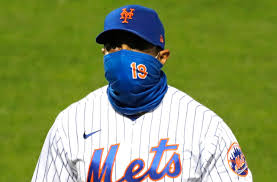 Luis Rojas seems to have a grip Luis Rojas seems to have a grip . enjoyed watching the calm eyes above the mask of Luis Rojas, the accidental manager -- he's Felipe Alou’s son; that told me a lot. I tried to ignore the counter philosophy that said we should avoid this goofus version of a season – 60 games, a tie-breaker gimmick in extra innings, 7-inning games in doubleheaders, no pitchers hitting in the National League, and, worst of all, no fans. I heard baseball people say they are just beginning to appreciate the fans. Really? Just now? The other day, I read an article by Tim Kurkjian of ESPN, the writer-commentator who knows the sport, lamenting a baseball season without “fun.” Tim is terrific, but I want to say that in my masochist world, “fun” involves suffering. Fun? I was a Brooklyn Dodger fan in 1950 when Richie Ashburn threw out Cal Abrams at home, and in 1951 when Bobby Thomson hit the home run, and 1956 when Don Larsen no-hit the Dodgers. Was any of that fun? I missed it. The real “fun” of baseball is thinking along with the participants and the commentators. I know more about the game since I retired and have been able to watch and listen to Gary and Keith and Ron, plus Howie on the radio, even though this year they did not travel with the team but made their calls, as well as possible, off the TV in an empty Mets’ ballpark. Hard for them and the audience, but it was still a game. With the Mets not qualifying for the playoffs, I don’t plan to watch the long 16-team slog to a “World Series” but I might be a backslider I’m liable to catch the occasional soccer game in the winter months but I stopped watching football and basketball and hockey years ago. College football? I never had respect for the ugly alliance between colleges and football, and now the Pac-12 has joined the other major conferences in risking the health of the so-called students who will play during Trump's pandemic. I think voters will get rid of this vile and ignorant President, and maybe more Americans will wise up about how to slow down this pandemic even before a legitimate vaccine arrives. Speaking of change, prospective buyer Steve Cohen says he will bring back Sandy Alderson to run the Mets. This must mean Alderson's health is stable. But what does it mean for Brodie Van Wagenen, the agent who has been running the Mets the last two years? In the meantime, the Mets got me through a long hot summer, and that is something. *** Tim Kurkjian’s knowledgeable view of this weird season: https://www.espn.com/mlb/story/_/id/29898470/this-fun-how-everyone-baseball-navigated-very-different-season. Cardboard spectators stared vapidly from behind home plate, their expressions never changing as the Mets and Yankees committed something akin to baseball.
This was the ambiance at New Shea Saturday night as Major League Baseball introduced Covid-Ball, a makeshift version of the great American pastime, or what used to be. Cruel boss that I am, I assigned myself to stick it out as a preview, or warning, of what this truncated season will be, if it lasts its threatened 60 games. (Some wary big names have already dropped out for this season; others are trying to come back from a Covid attack. To be continued.) This was only an exhibition, spring training in mid-July, and there was to be another one at Yankee Stadium Sunday evening before the “season” opens late in the week. I will tell you up front that my biggest thrill of the night was seeing the aerial view of Queens, my home borough – the globe in the park, a glimpse of the wonderful Queens Museum, the No. 7 elevated train gliding through the neighborhood, as sweet as a gondola through Venice. Oh, my! I am so homesick for Queens! I thought of the joys within a mile or two of this sweet spot – my friends and the heroes at Mama’s deli on 104th St., other friends at the New York Times plant, just to the east, the food and the crowds in downtown Flushing, the Indian food in Jackson Heights, and so on. I miss all these at least as much as baseball. There was a strange hybrid form of baseball taking place in New Shea. Yankee manager Aaron Boone was moving his jaws inside his soft gray mask, either chewing something or talking a lot. The first home-plate ump (they mysteriously rotated during the game) had some kind of plexiglass shield inside his mask, to ward off virulent Trumpian microbes. I was mostly watching the Mets’ broadcast, with good old Ron and good old Keith two yards apart in one booth and good old Gary in a separate booth, but their familiarity and friendship came through. Welcome to this strange new world. Later I switched to the Yankee broadcast and realized Michael Kay and the others were not in Queens but were commenting off the same video we were seeing. Not sure how that will work out during the season. Early in the game I learned that the Toronto Blue Jays will not be able to play in that lovely city this “season,” for fear of being contaminated by the virus the viciously bumbling Trump “government” and block-headed Sunbelt Republican governors have allowed to rage. I don’t blame the more enlightened Canadian government – but a few days before the season opener? The Jays will apparently play in Buffalo, creating all kinds of logistical horrors for anybody in Ontario with Blue Jay business. The highlight of Saturday’s exhibition was Clint Frazier, the strong-minded Yankee outfielder who plans to wear a kerchief-type mask during games, including at bat. Does a mask impede a batter’s reaction to a fastball, up and in? Maybe. But Frazier unloaded a 450-foot homer into the empty upper deck – (Sound of summer: Michael Kay: “SEE-ya!”) -- and some teammates in the dugout flashed masks in tribute to Frazier. I obsessed about those cardboard fans behind home plate. The absence of real people takes away one of the peripheral joys of watching a game – demonstrative or even annoying fans, the occasional celebrity, and, yes, I admit, women in summer garb. Will these faux fans become part of lore? Will they be rotated, replaced by new faces during the “season?” Just asking. Finally, there was the recorded crowd noise, an apparently steady hum. No pro-Met chants, no anti-Yankee jibes, just background, like the roar of the sea, I caught the last inning on the Mets’ radio broadcast, where good old Howie was speculating that the home-team genies in the control room were raising the sound a bit when the Mets were rallying. I stuck it out because I had assigned myself to “cover” the event. But I wondered about the reaction of my pal, Jerry Rosenthal, one-time all-conference shortstop at Hofstra, two-year Milwaukee Brave farmhand, and now lifetime baseball purist and authority. How did Jerry like the ersatz game? He texted: “Watched one inning of the game. I am now watching ‘The Maltese Falcon” for about the 25th time. That should tell you something!” Yes, it does. Play “ball.” I just learned something about sports in empty venues: even without the fans roaring, the drama and the skill can be magnificent in front of the tube.
This is worth noting as major American sports prepare for unprecedented short seasons and makeshift playoffs. None of this means any athletes should be playing. Covid-19 is raging, sparked by the cruel and intentional stupidity of Donald Trump. Athletes are probably setting a bad example just from their proximity, no matter the health protocols cobbled together. To be continued. But what I realized Thursday was that great athletes and great sports and great histories and great plots make for great viewing. My little epiphany came during the Premier League match between Chelsea and Manchester City in London. I wasn’t even watching until I started getting pinged by my son-in-law in Deepest Pennsylvania, telling me that homeboy Christian Pulisic from nearby Hershey was starting for Chelsea. The next ping told me Pulisic had scored. So I dropped my household chores and turned on the tube. The replays showed the wunderkind, not yet 22, sharking two Man City defenders, putting pressure on them, forcing them into a dreadful giveaway, and then changing his gears several times as he corkscrewed the hapless Man City keeper into the turf and slipped a goal into the corner – a brilliant bit of opportunism, whether in front of a packed house in Stamford Bridge or an empty one. On TV, it was stunning. The goal was also vital because Man City was one loss or one draw away from yielding its title to Liverpool after two straight championships. Liverpool was so far ahead this season that a title was inevitable, but now it might happen without Liverpool flexing a muscle except of course in front of their own TV sets up north. The great soccer continued: Kevin DeBruyne, the red-headed Belgian with Man City, hooked a free kick into the left corner to draw the game. World level skill. Raheem Sterling, the young Man City star who has been the spokesman for Black Lives Matter in British football, missed twice by inches. Pulisic sharked Man City again but this time Kyle Walker slid on the goal line to stop the ball millimeters from the white line. And then a seasoned City player, Fernandinho, let his left hand dangle to stop a shot in goalmouth, and was called for a red card. (Sour Grapes Dept: the very same act, uncalled, cost the U.S. a goal in the 2002 World Cup quarterfinal against Germany.) Willian scored the penalty for Chelsea in the 78th minute and idle Liverpool would clinch the title – its first in 30 years. Pinging in my phone from father and son in Deepest Pennsylvania followed by the TV views of fans lurching around Anfield Road at dusk, and a raucous Zoom montage around Britain of Red Devil fans in their red jerseys celebrating – the modern mix of Liverpool fans, white and black, young and old, male and female, even the odd dog. Some fans held up signs that said: “You’ll Never Walk Alone,” the inspirational theme song of Liverpool for decades now. One of the broadcasters noted that Liverpool has been revamped in the past decade by John Henry, the very same introverted owner who revamped the Boston Red Sox from a decades-long miasma of its own. People who follow sports carry these legends with them while watching, and debating, even while sitting out off-seasons and [postponements during this frightening plague. On this very same; day, in unusually hot England, close to a million people rushed to the southern shore, packing the beaches, breathing on each other at close range, just as they would be in a packed stadium. Are we humans that eager to infect each other, perhaps mortally, at sports events, the beach, religious services, political rallies for the fragile ego of a dangerous president? Well, it would appear we are. Now we are about to will American sports into close-order competition, with “rules” that seem ludicrous. (One of my favorite new conditions for baseball players on the road for the next three months stipulates that only close relatives will be allowed into players' hotel rooms.) For the moment, a father and son in Deepest Pennsylvania celebrated a championship in England, performed by some of the best players in the world. I watched. It was terrific. Now, heart in mouth, in this dangerous time, I await the Mets. I did the healthy thing and did not watch a moment on Sunday night. While I read a book, the next generation kept me posted -- good reviews for the ladies, terrible reviews for the TV babblers. Some of our family were early Mahomes fans; I'm happy for them. Ditto for my friend Bill Wakefield, ex-Met, who chose his home town over his adopted Bay Area. I have that righteous (probably smug) feeling I have on Jan. 1 after going to sleep before midnight..
Now I have a three-word mantra for other true believers: Pitchers And Catchers!!! * * * After covering 10 or 11 Super Bowls (*), I still did not truly understand the broad appeal of the event -- until Friday evening. While watching the Republican majority in the Senate dump on the impeachment trial, I became aware of the magnetic pull of the Big Game on everybody – not just the deaf, dumb and blind Senate majority but even the broadcasters on cable news, who referred to the Super Bowl in just about every other sentence. People made jokes about home-region teams -- nicknames, rivalries, ancient games -- as if that mattered more than a real hearing, a real trial. I got the impression that even news TV people with connections had the promise of a ticket and a flight to South Florida, as long as the Senate did not take its job seriously and keep working into Saturday. Plus, four Democrat senators could now rush out to Iowa to peddle their wares before the caucus on Monday. Take it from me, up close the Super Bowl is just another football game – but with more logistical annoyances, more noise, more stupid stuff at halftime, more clichés, and in the end just a bunch of running and passing and tackling and blocking and kicking and commercial timeouts. It really isn’t much of a consolation that the Senate cannot officially toss the impeachment into the Dumpster until Wednesday. Does this mean Trump won’t swagger around South Florida on Sunday….and strut into the State of the Union speech on Tuesday….and make pointed remarks about how the Democrats couldn’t prove a thing. He’s been getting away with stuff all his life. But at least his latest escape won’t be official until Wednesday. The big game this weekend is that Americans can ignore the reality that Trump forced Ukraine to survive without promised weapons for many crucial days last summer while Trump pursued a personal and political goal and jeopardized Ukrainian people and befouled the honorable career of a diplomat assigned to Ukraine Thanks to the Republican majority in the Senate – who will be pursued by emerging facts in days and weeks to come -- the menace and the lies get to take a few days off now. Democracy and justice have been kneed in the groin, have “had their bell rung,” as the football broadcasters used to bray, have been tripped and elbowed, have been clotheslined by a neck-high tackle. The big game will be run by tighter rules than the Trump Frolics, but that makes sense. After all, what’s more important - an impeachment trial or a Super Bowl? * * * (*) -- I originally thought I covered nearly two dozen Super Bowls, but it just seemed that way. When I checked, it was only 10. Maybe 11. Some of them numbed my mind but I do have memories: Preservation Hall jazz in 1970; having to trek over snowy fields because VP Bush's arrival halted all traffic around the Silverdome in 1982; John Riggins' superb traction on a slick Rose Bowl field in 1983; enjoying the Bears, my favorite childhood team, winning in NOLA in 1986; and watching southern drivers try to negotiate icy interstates before Atlanta game in 2000. Who says there is no fun at the Super Bowl? I’ll let you define “here.” There are thousands of factors from "there" to "here," but I’m going to list four random indicators that something was happening. One. My wife went to the movies with some fellow teachers, circa 1981 -- "Raiders of the Lost Ark." She watched as Harrison Ford blew away a guy who was wielding a sword, in front of a crowd, and she felt he did it with a smirk, for yucks, and the audience laughed, and she felt tears. Something is different, she said. Life means less. 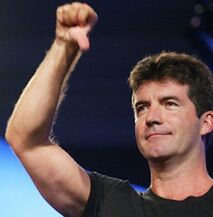 The Simon Guy The Simon Guy Two. I was clicking through the cable channels around 2006 – no doubt looking for a ball game or a soccer match – and happened upon a talent competition. We had these things when I was a kid, Arthur Godfrey's Talent Scouts – first prize being a week on his morning radio show. Godfrey was generally genial on the air (well, except when he fired his singer, Julius LaRosa, live, to teach him some “humility.”) In 2006, a talent competition was different. A British guy named Simon was sneering and making remarks about the competitors, and also about the wisdom of his fellow judges. I had never seen such sheer nastiness on the air; the show was about this Simon guy, not about the contestants singing or dancing their hearts out. I had never seen a reality show -- knew they existed, but avoided them, scrupulously. Only thing I could say about sneering Simon was “If he acted like that in the schoolyard where I played basketball, somebody would have popped him one.” But Simon seemed quite popular. Three. I did hear there was a comparable reality show on the tube, starring a guy who grew up near me in Queens. He was rather yappy; friends of mine who lived next door told me that. I never saw him in the schoolyard. Later, I heard he had been staked by his successful builder father to a rather large allowance to look like a successful businessman. He owned a team in a low-scale pro football league; his wife (first wife, as it turned out) had to correct all the things he did not know about his team. Then I heard the guy had his own reality show, on which he postured and preened, Simon-like, dismissing candidates with a curt “You’re fired.” I heard it was popular but I never saw it. After all, I had met the guy. People in New York didn't take him seriously. We knew. Four. Starting in 2009, I started to read about new members of Congress who had run for the House or Senate because….they did not much like centralized government and the use of taxes to run the country, to help other people. Once elected, they were obligated to go to Washington for a few days here and there, but to show their disdain for centralized government they bragged about bunking in with friends, maybe even sleeping on couches in their offices, until they could get back home to God’s Country, away from the Deep State. These advocates of minimal government were labelled The Tea Party by Rick Santelli of CNBC. Last elected rep to leave, please turn out the lights. That brings us to today, when the country seems to be divided between elected public officials who seem to have studied and respected the Constitution and the Founding Fathers and other elected public officials who seem to have a Tea Party twitch to shut the whole thing down and turn it over to Our Masters – particularly the guy on the reality show. I guess it goes back to laughing at bodies being blown to bits by Indiana Jones, back to contestants and fellow judges being mocked by the Simon guy, back to Tea Party types who don’t believe in the separation of powers of government, who do not respect the public servants who make government run. It’s been coming on for a long time. It’s not the playoffs. It’s so much more. That’s the only way to think about the championship of Major League Baseball, grandiosely named The World Series.
I love the World Series because it’s been around since 1903, albeit transferred from the sunlight of early October to the televised darkness of late October. The World Series deserves a sharp mental click of the brain when the league playoffs end and the World Series begins. It’s different. The Washington Nationals and Houston Astros are playing in the same event graced by Walter Johnson of the Washington Senators and Willie Mays of the New York Giants back in other days, when there were two distinct leagues, no playoffs, but two champions playing each other. Who will be the Country Slaughter of St. Louis racing home with the winning run of the 1946 World Series or Joe Carter winning the 1993 World Series with a walk-off homer for the Toronto Blue Jays? (I still call the 1946 World Series my favorite because it was the first one I noticed, age 7 -- players back from the war, Musial vs. Williams, two grand baseball cities, epic winning run.) World Series statistics exist in their separate category: Q: (Courtesy of my friend Hansen Alexander): What team has the best percentage of championships in the World Series? A: why, it’s the Toronto Blue Jays, 2-0, in 1992-93. Q: Which star is the first pitcher to lose his first five decisions in the World Series? A: As of Wednesday evening, it is the excellent Justin Verlander of Houston. (Not some palooka, but the two-time Cy Young Award winner with grass stains in an unusual place – on his name on the back of his uniform from diving for a dribbler Wednesday.) I heard that gloomy 0-5 statistic and immediately thought of the admirable Don Newcombe of my childhood team, the Brooklyn Dodgers, who had an 0-4 record in the World Series (all against the Yankees. The World Series is not merely part of the post-season. Do younger fans make that distinction? Or is it just another long and noisy event in the October TV calendar? Speaking of TV, I find it hard to watch these four-hour games, particularly with network breathless overkill of stats and story lines, bringing the world up to speed on these two teams. I am geared to the Mets’ TV and radio crews, speaking to knowledgeable home-team fans. To be fair, Ken Rosenthal and Tom Verducci have journalism credentials, and John Smoltz is an intelligent former star pitcher, but Joe Buck just wears thin, hour by hour by hour. It’s easy to root if you have a team in the World Series. Otherwise, there is a void. I was inclined to root for Houston – having fallen in love with that team that won the 2017 Series and is mostly intact, with alert and lean players who play the game the right way – and let the homers come as they will. I love Jose Altuve, my favorite non-Met. (Aaron Judge of the Yankees is second. I loved the clip of the two of them talking during the league series – 13 inches’ difference in height.) Plus, as a Met fan, I have come to think of Washington as an underperforming franchise, firing wise old managers like Dusty Baker and Davey Johnson, with sourpusses like Bryce Harper and Stephen Strasburg, but they let Harper walk last winter, and Strasburg seems to have matured, and the Nationals have, finally, jelled. There is one other factor to following the World Series when your team has long since scattered to the hinterlands – familiar faces. During Wednesday night’s marathon, I got an e-mail from my friend Bill Wakefield, who pitched for the 1964 Mets. He referred to “your guy,” meaning Asdrubal Cabrera, the wise old head who gave the Mets several seasons of skill and leadership and joyful noise. Cabrera was the one who ritually removed the helmet from the teammate who had just hit a homer. He made everybody better. Then he moved on. Cabrera was ticked last summer when the Mets did not bring him back for a stretch run, so he signed with the Nationals. He started at second base in the first two games in Houston (where the designated hitter rule is observed) and drove in three runs Wednesday. Root for “your guy.” Cabrera or Altuve? Either way, these two teams are adding to the lore and emotion and statistics of that very American stand-alone event called, you should pardon the expression, the World Series. I've never seen “Game of Thrones.” Never saw “Dallas” or “Empire” or “Sex and the City” or "The Wire," for that matter. This is not a value judgment. I do understand. I’ve watched exactly one series since our children were home and we watched “M*A*S*H” and “All in the Family.” I can relate to people who watch their compelling series because I fell hard for “The Sopranos,” oh, a few years back. I schemed and plotted so I could be home in front of the tube on Sunday night to feel my blood grow cold and my breath constricted as Tony Soprano killed and lied and cheated -- and I rooted for him to survive. My entire week was built around Tony and Carmela. I remember once on a drive through the Appalachians, stopping at motels until, on a converted strip mine above Hazard, Ky., I found one place that had “HBO.” (In my fevered mind, Tony and Carmela moved to Boca Raton, had their identities and fingerprints altered, and are sitting by the pool, safe, grandparents and churchgoers.) 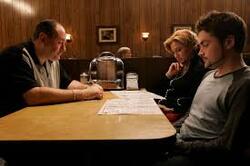 Enjoy your obsession. I have a few of my own – The Mets are the only team I watch (may have to reconsider this season), and I also watch high-end soccer (The Women’s World Cup from France, this summer.) I have also watched more hours of The Bureau of Wishful Thinking (i.e. MSNBC) than was good for me. Every morning I wake up and find the Times on my doorstep and realize that guy and his cohorts were still here. Lately, I've been reading more, and listening to classical music. Just to stay sane. And for the past few years we have forced ourselves to stay awake until the cold opening of “Saturday Night Live.” After decades, I have gone back to “SNL” because….because….it is still there, having just concluded its 44th season last night. Entire careers on “SNL” came and went while I was on the road or staying up late with friends, but lately I have revived memories of our kids being home and watching Gilda and Steve and Bill and Dan and Chevy (and in some blip of time more recently, the brilliant Tina Fey.) I understand TV obsessions because lately I have had mine – watching Alec Baldwin or Ben Stiller or Robert DeNiro do guest riffs, impersonating people in the news. “SNL” is terribly uneven – a lot of spoofs of game shows or social situations I do not claim to understand, and “musicians” who mostly hop around and point their fingers. But sometimes it catches fire. One of the best shows – maybe ever – was in early March when John Mulaney took over the 90 minutes, with his own monologues and even busting some moves and cool as a white guy at a black music party. https://www.youtube.com/watch?v=-mSGwndFMp8 The overdue arrival of black performers and black perspective has sustained me in recent years. I loved Chance the Rapper and cast members doing a soul song called “Come Back, Barack,” with a bittersweet take. q=youtube+snl+come+back+barack&rlz=1C1GGRV_enUS751US751&oq=youtube+snl+come+back+barack&aqs=chrome..69i57j69i64.4749j0j7&sourceid=chrome&ie=UTF-8 If my wife or I doze off during the show, we wake each other for the “Weekend Update” with Colin Jost and Michael Che because they often serve as straight men, letting talented cast members go wild. My real obsession is Kate McKinnon, who fearlessly shifts from foul-mouthed, cigarette-puffing harpies to evil garden trolls with sparse hair and menacing grins like Jeff Sessions and Rudy Giuliani. Other times she is absolutely beautiful. For me, she is advancing into Gilda-and-Tina territory. I fear the day she moves on, as most of them do. Anyway, enjoy the finale of “Game of Thrones.” I understand. |
Categories
All
|




